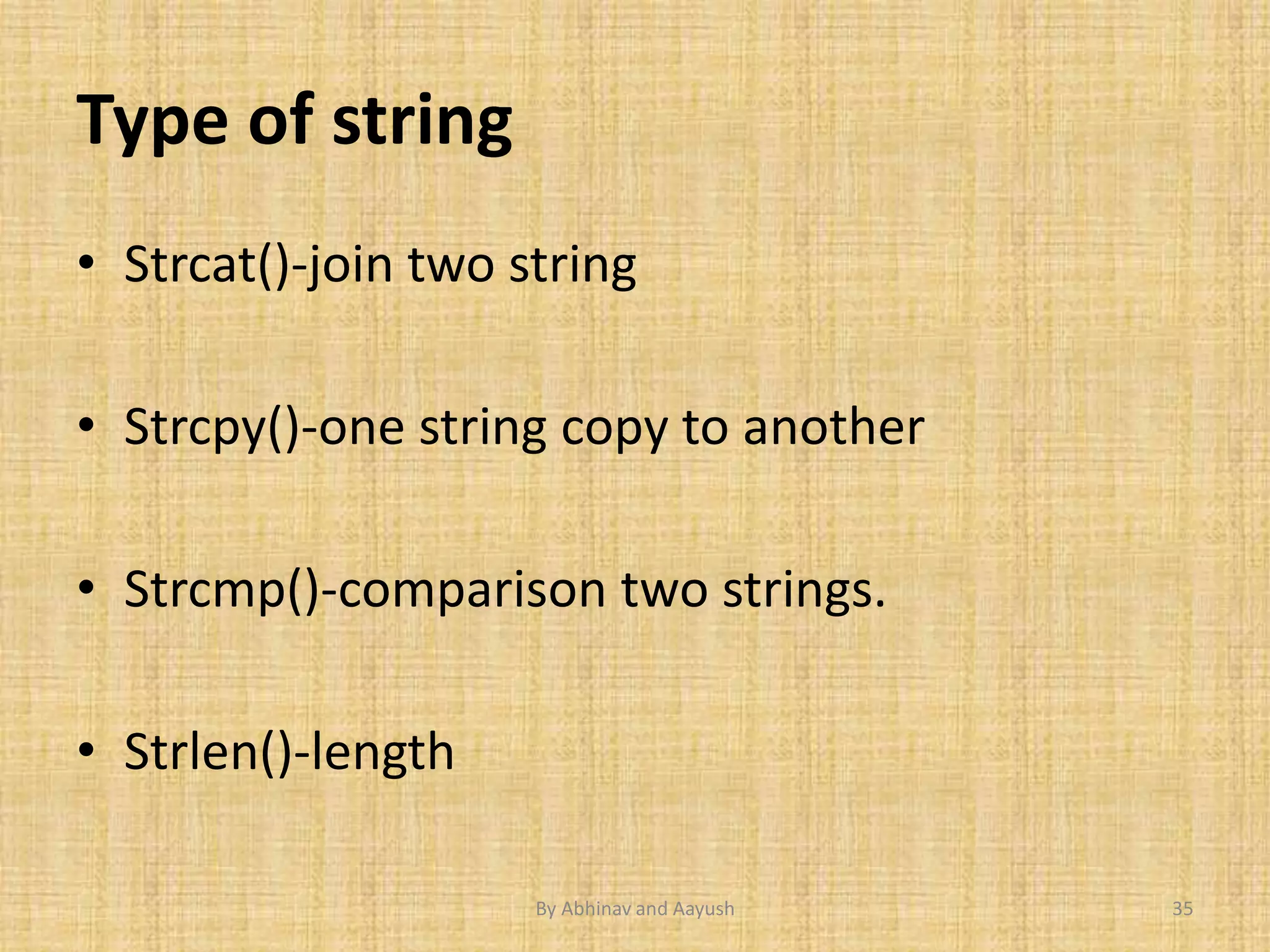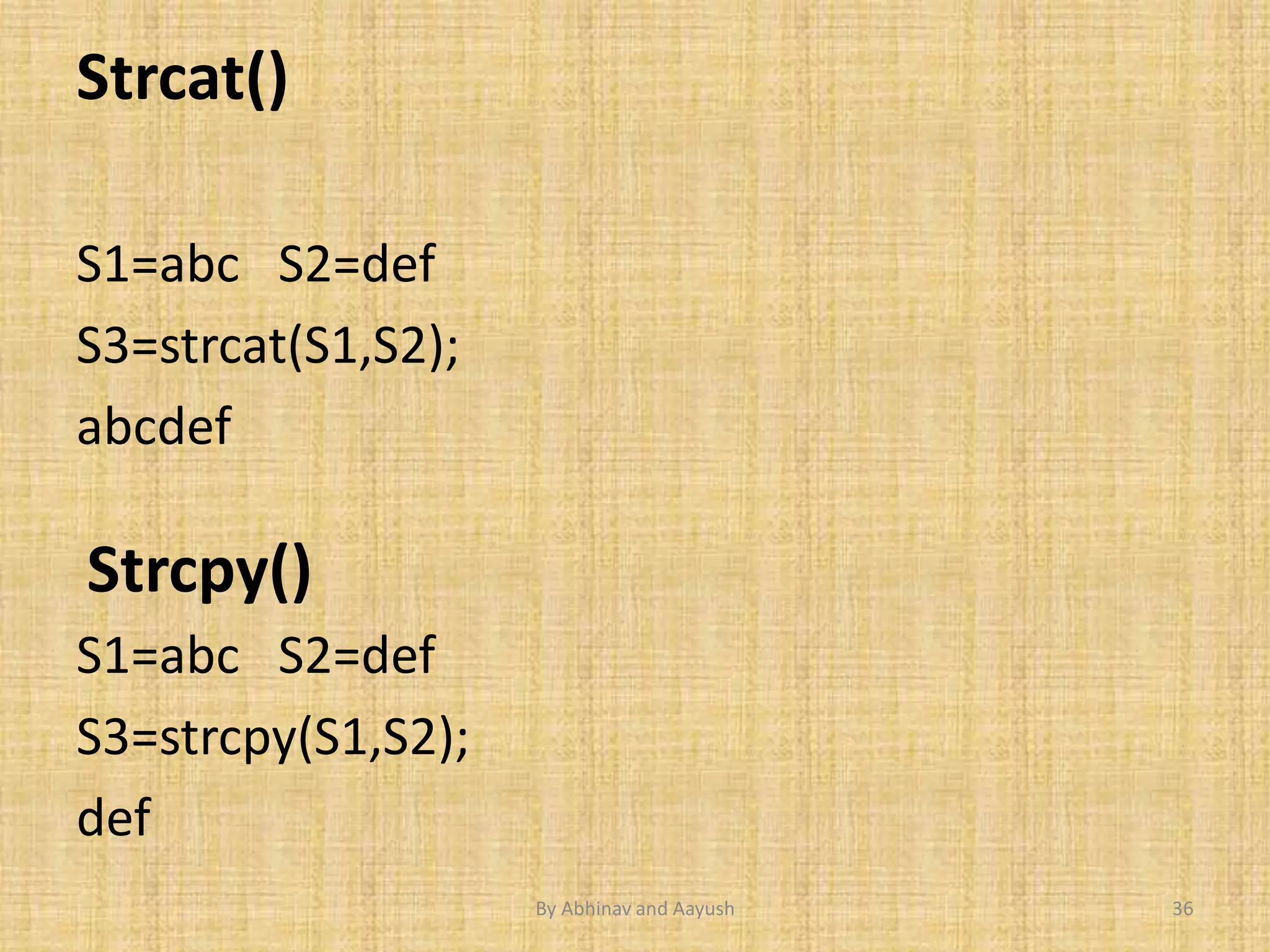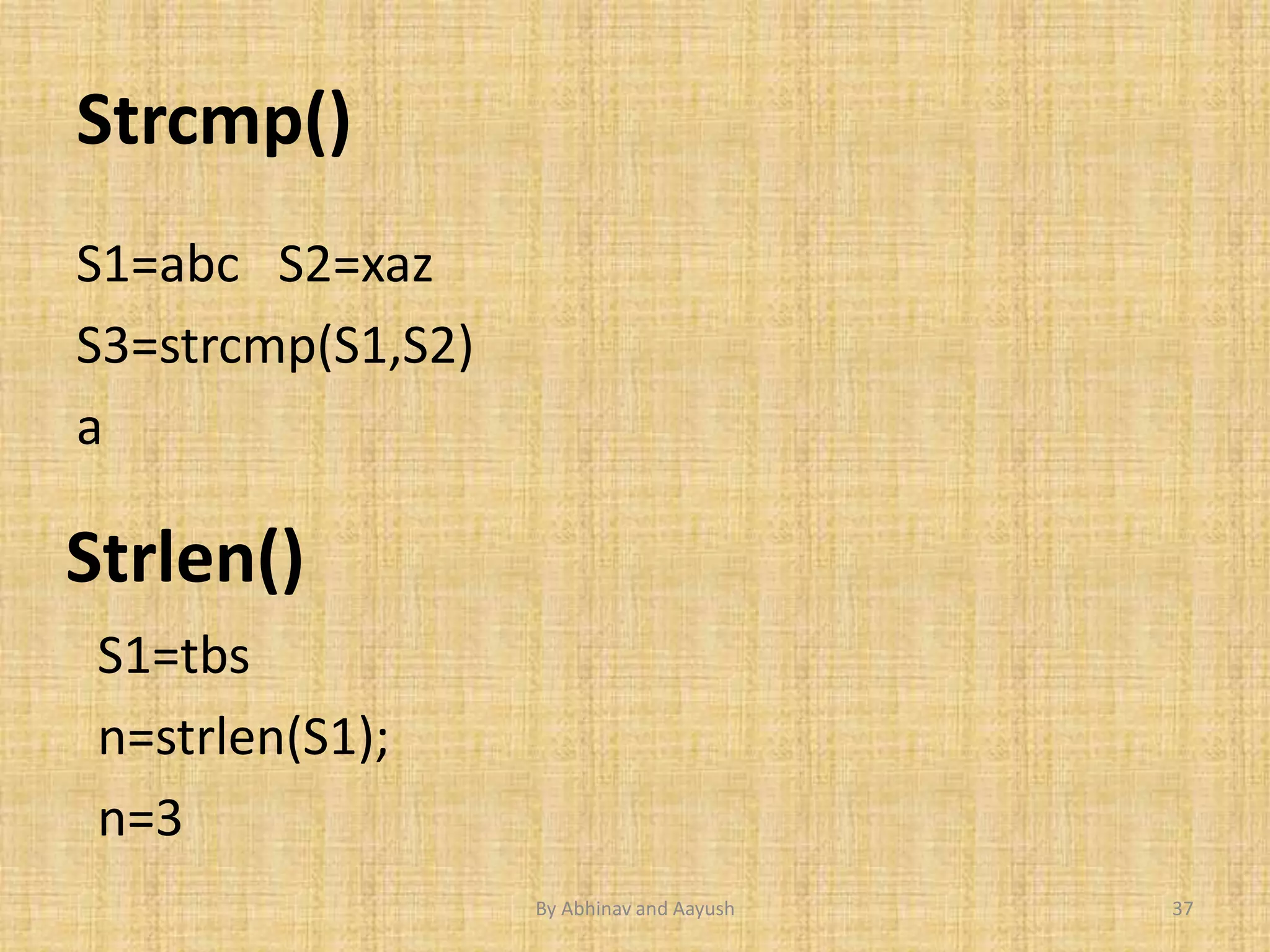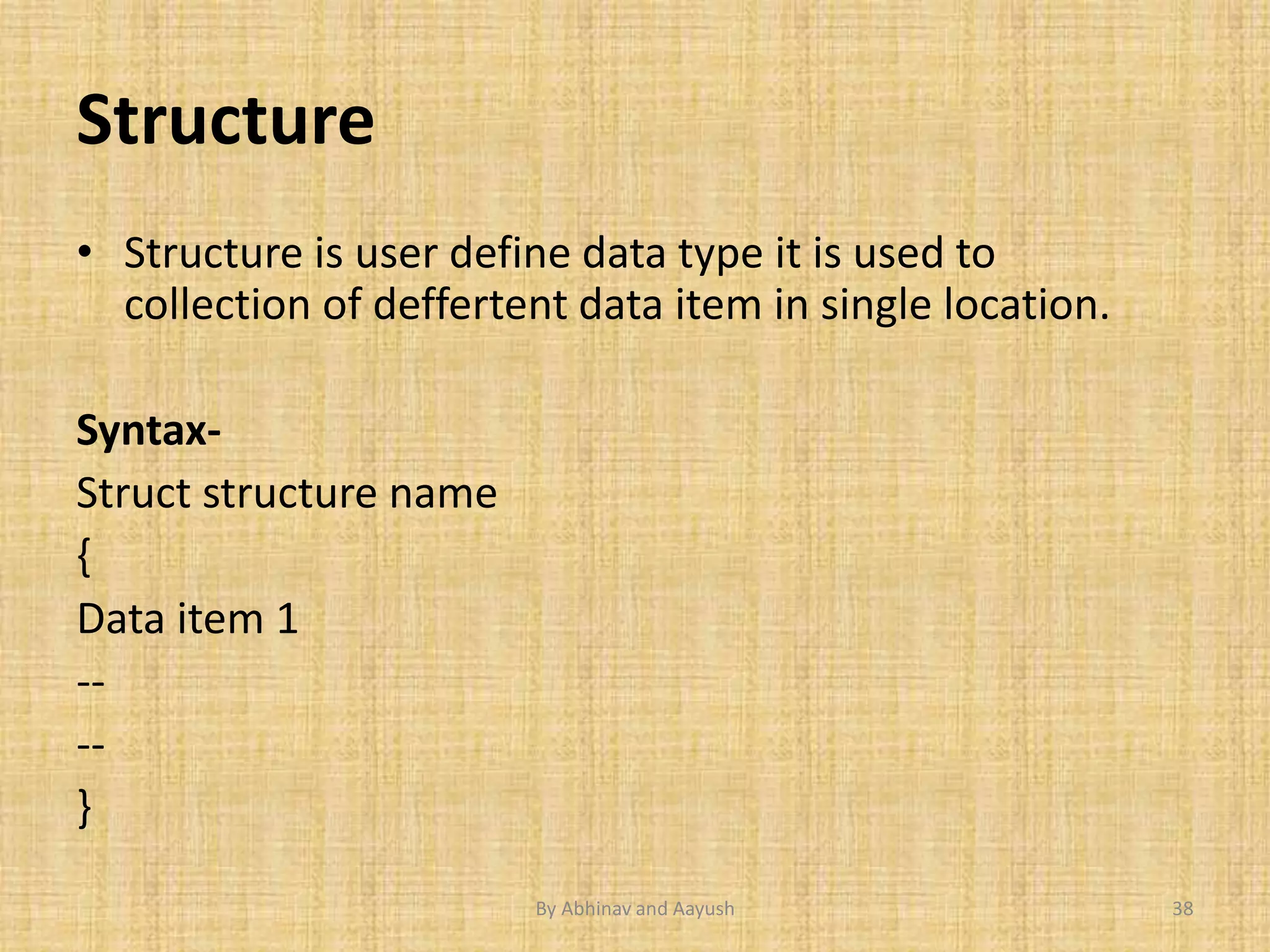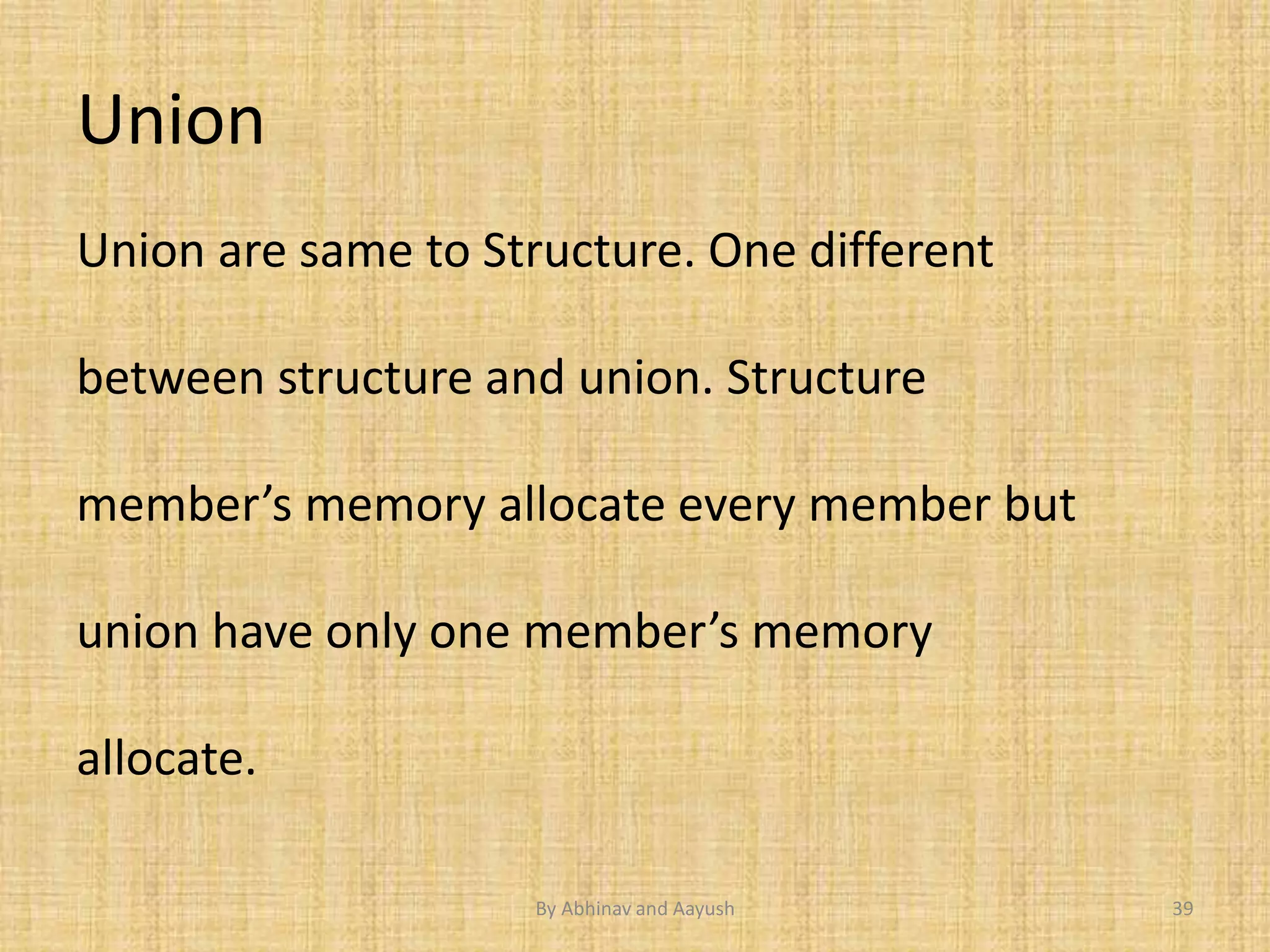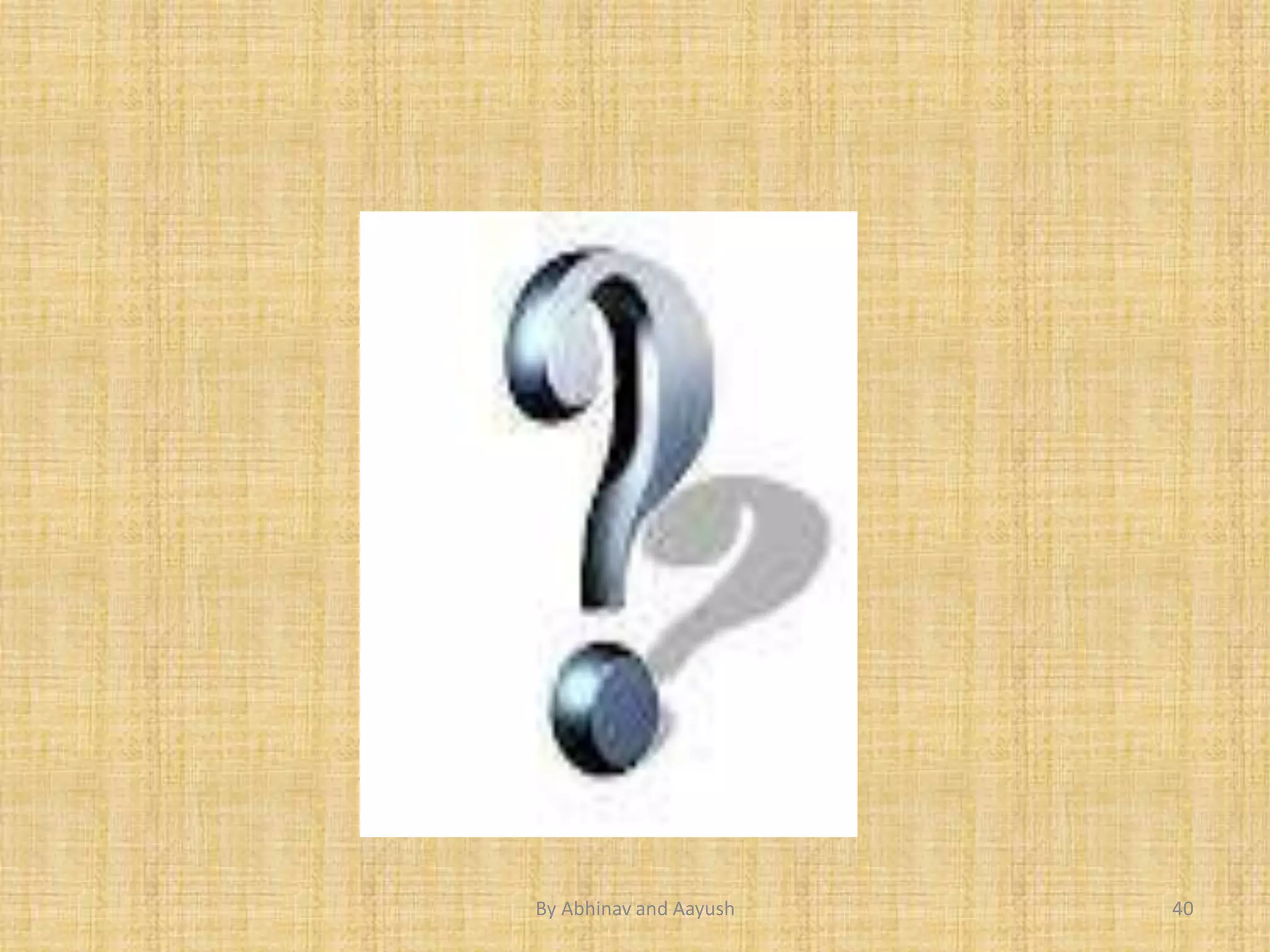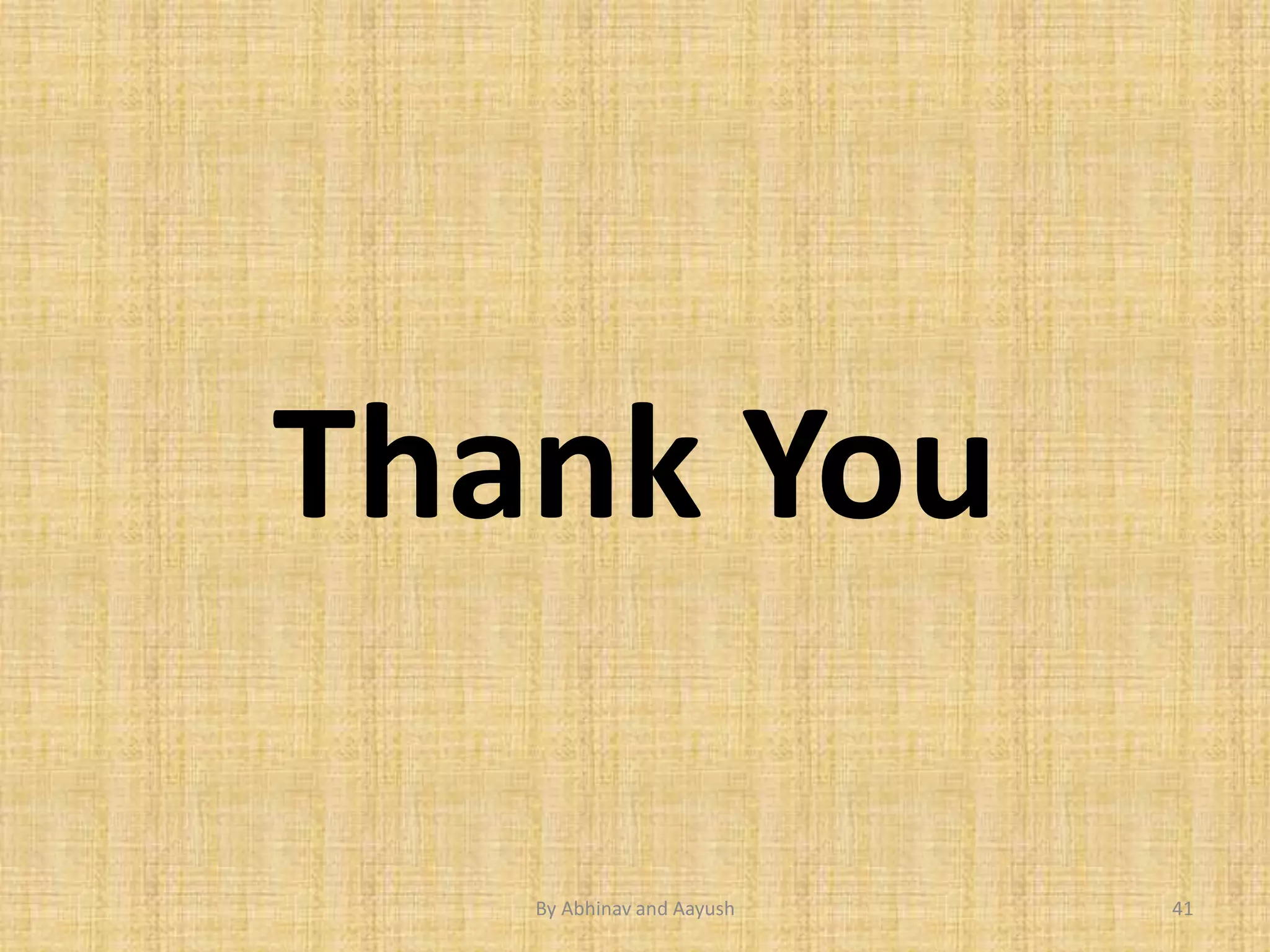The document provides an overview of the C programming language. It discusses the history and creation of C in 1972 by Dennis Ritchie. It describes the basic structure of a C program including header files, function definitions, and main functions. It also summarizes C's character set, data types, keywords, operators, input/output functions, and other core elements of the C language like arrays, strings, structures, and unions.
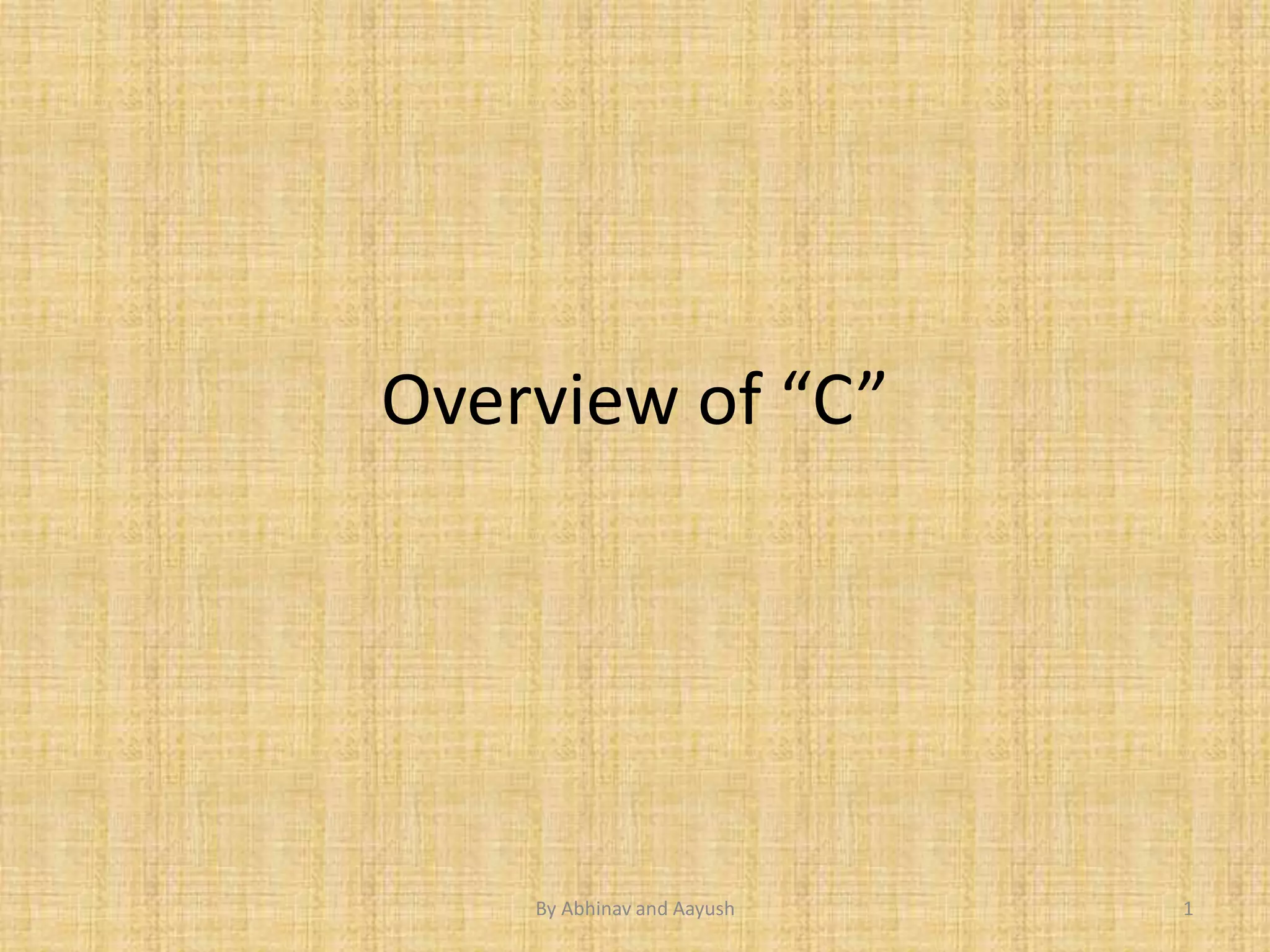
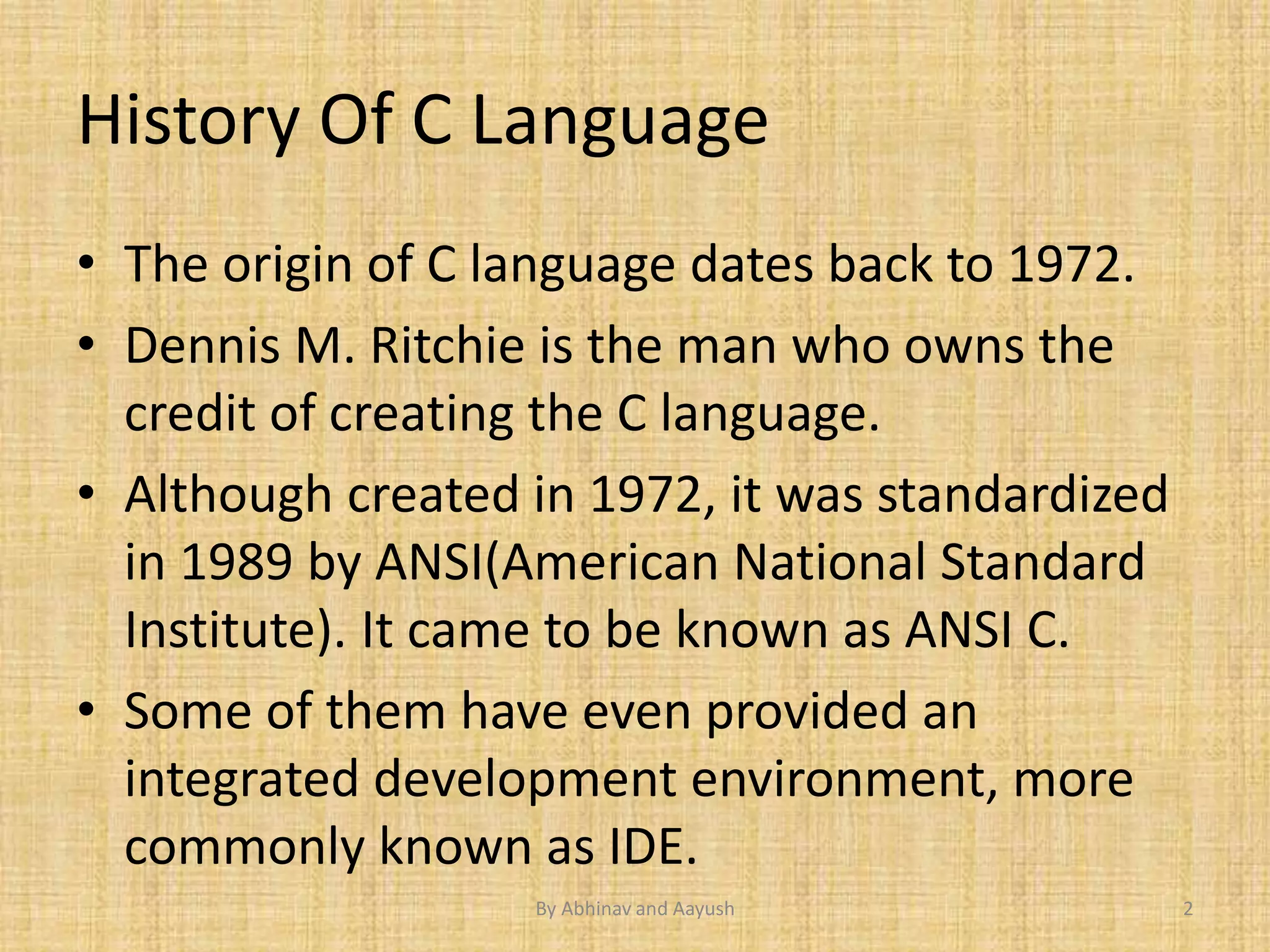
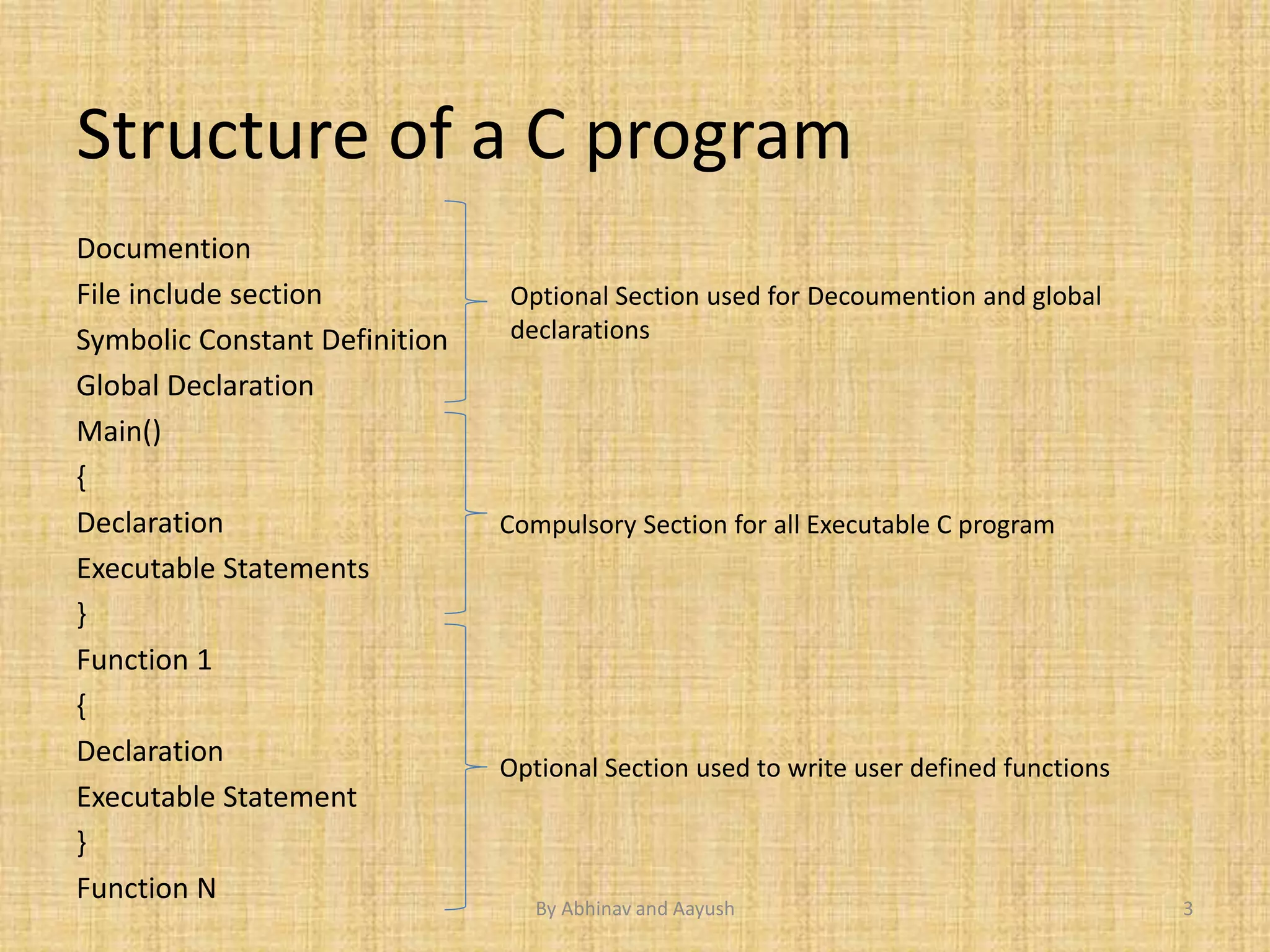
![Character set of C
• Letters(a To z and A To Z)
• Digits (0 ,1,2,3,4,5,6,7,8,9)
• White spaces(Blank space, Form feed,
Horizontal tab, New line, vertical tab)
• Special Characters( & , ‘ * @ {} [] ^ : $ = ! / >
# < - () % . + ? “ ; _ |)
By Abhinav and Aayush 4](https://image.slidesharecdn.com/overviewofc2-141016091634-conversion-gate01/75/Overview-of-c-2-4-2048.jpg)
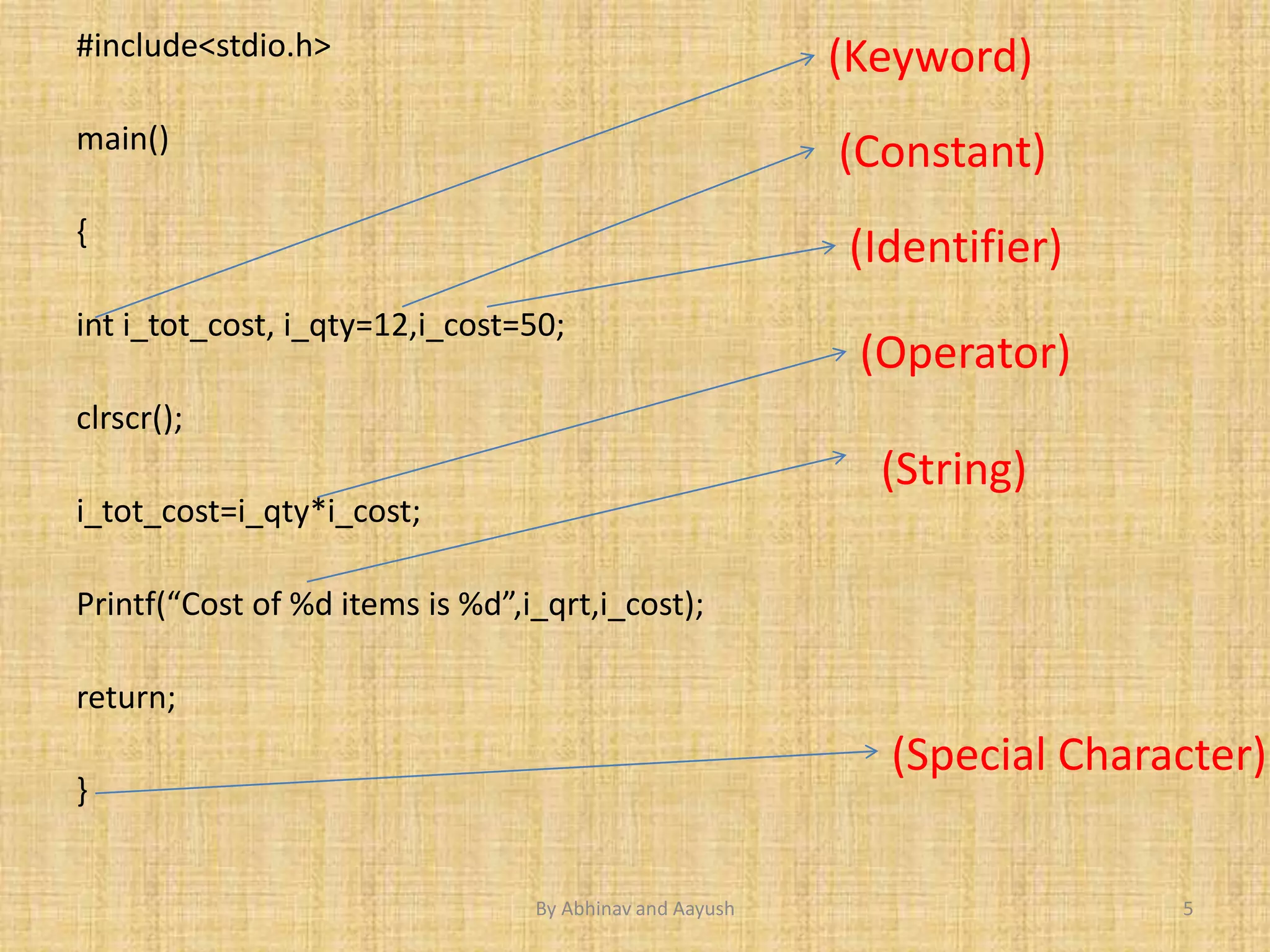
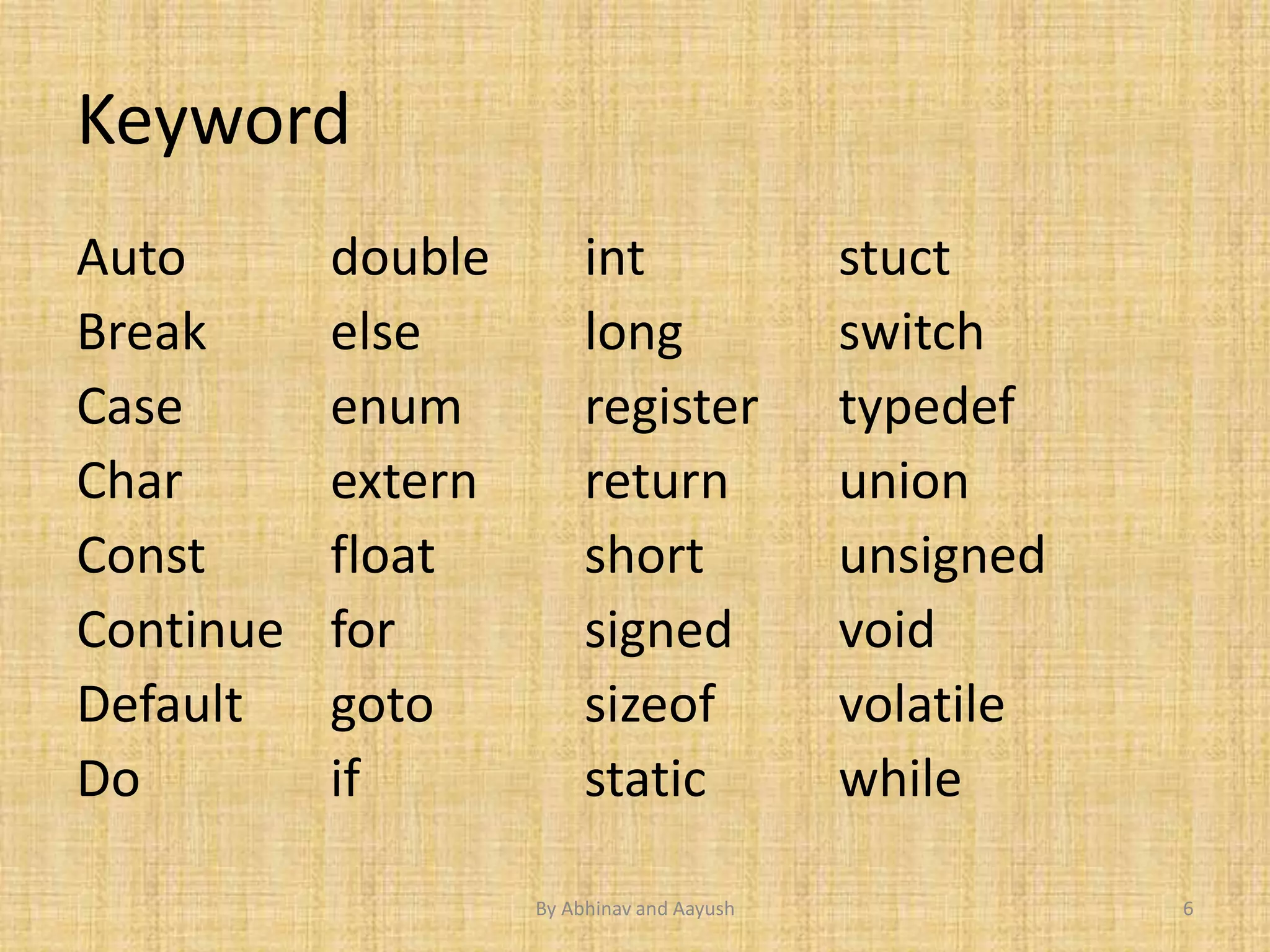
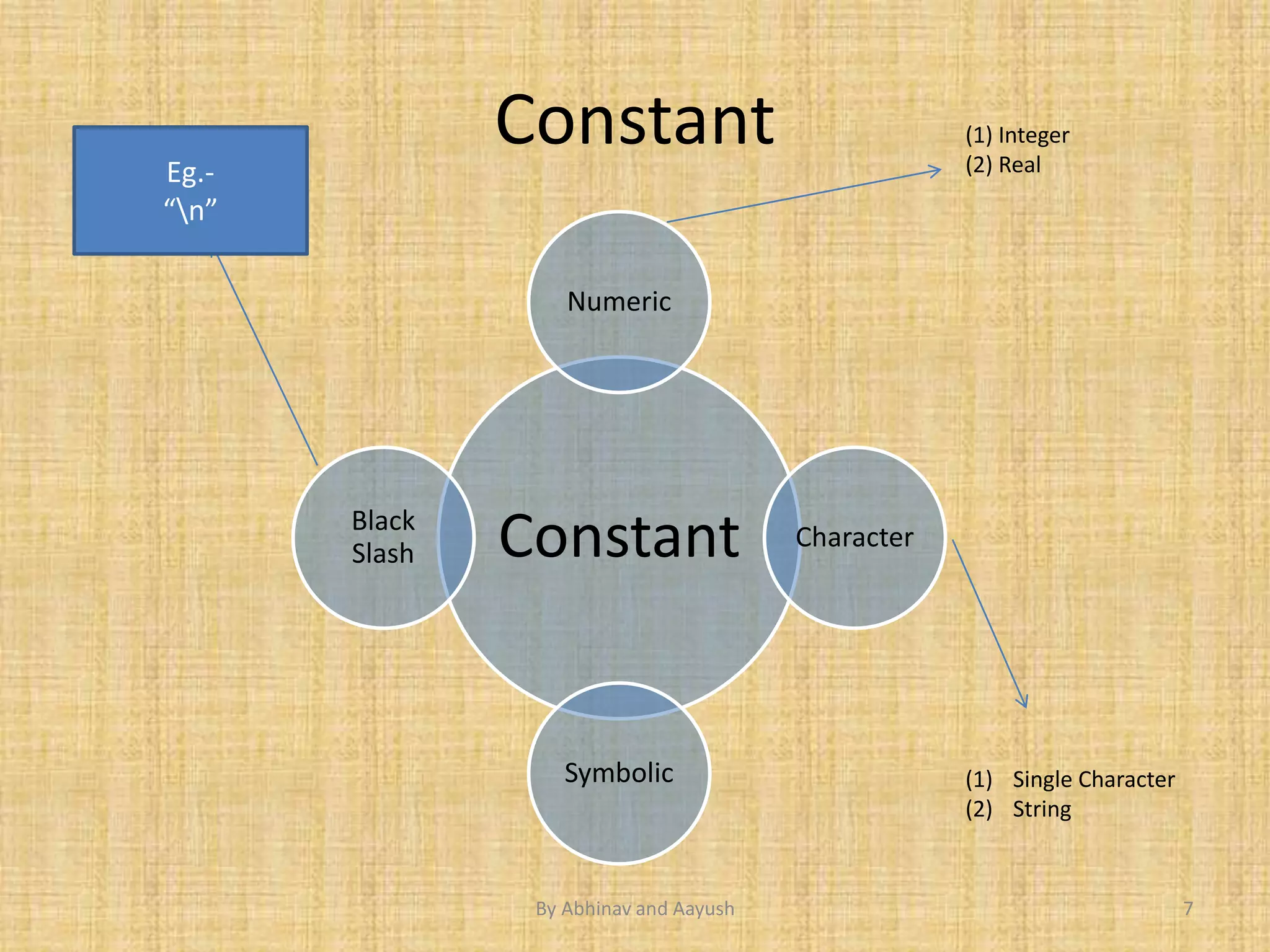
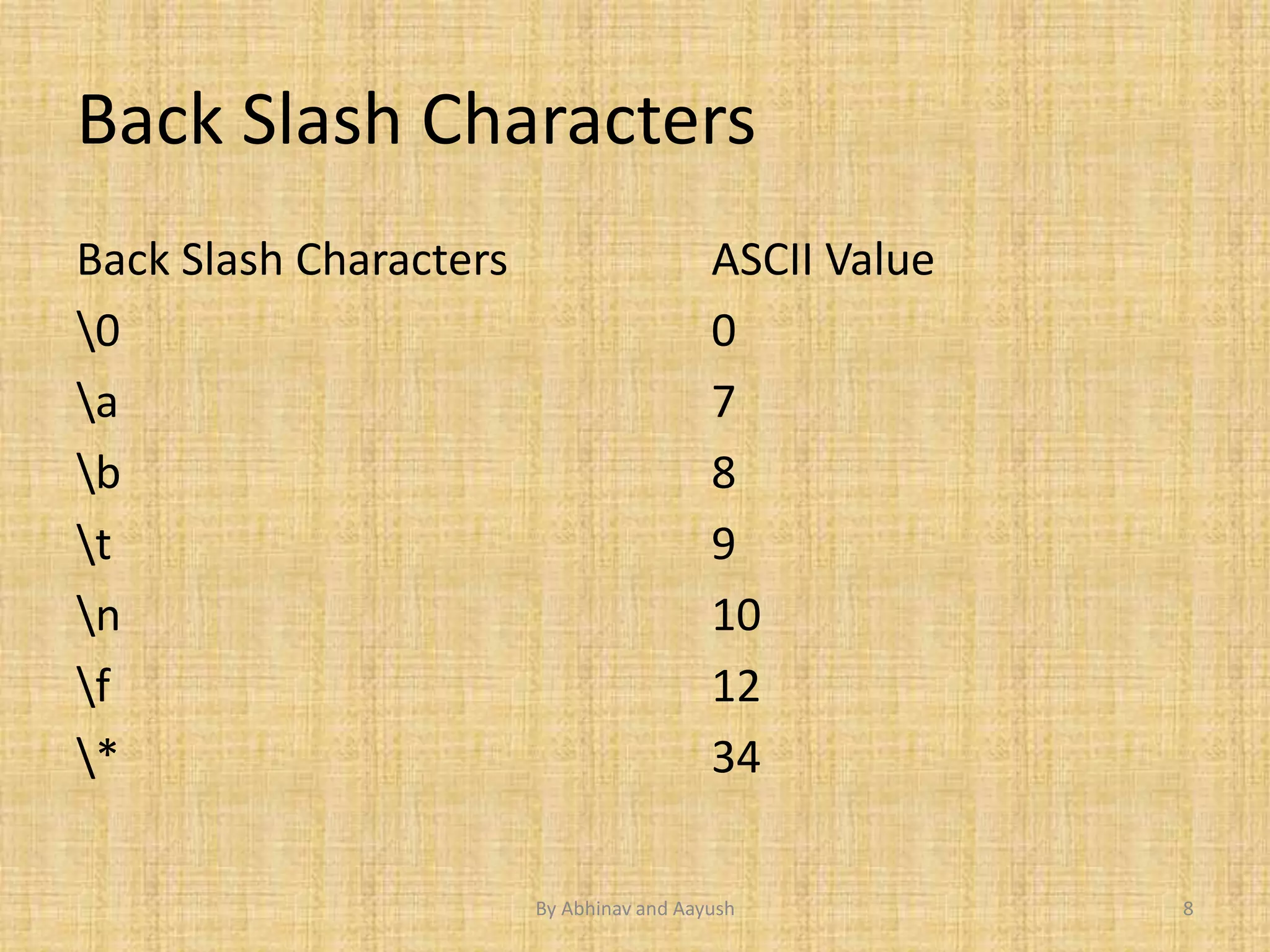
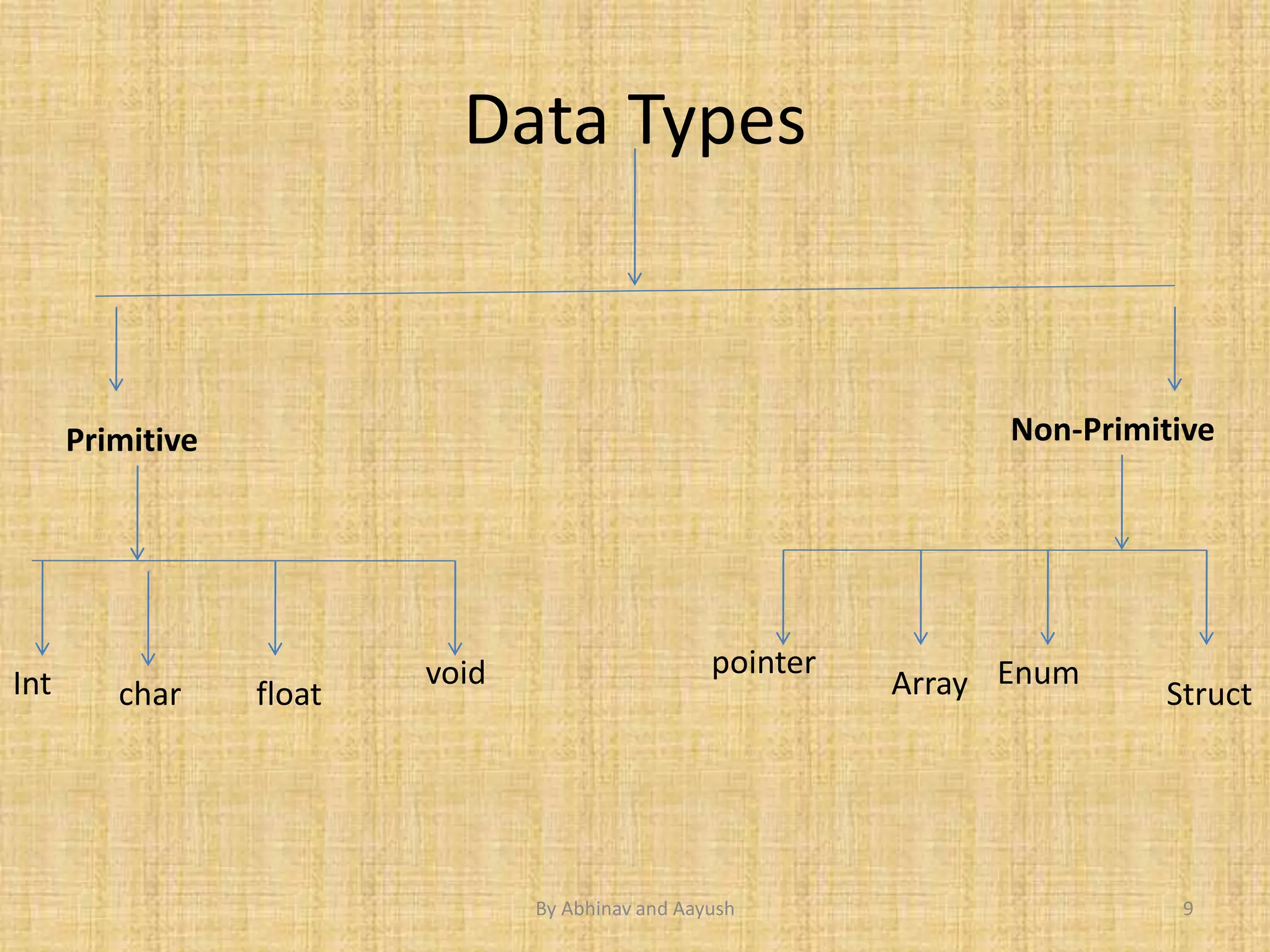
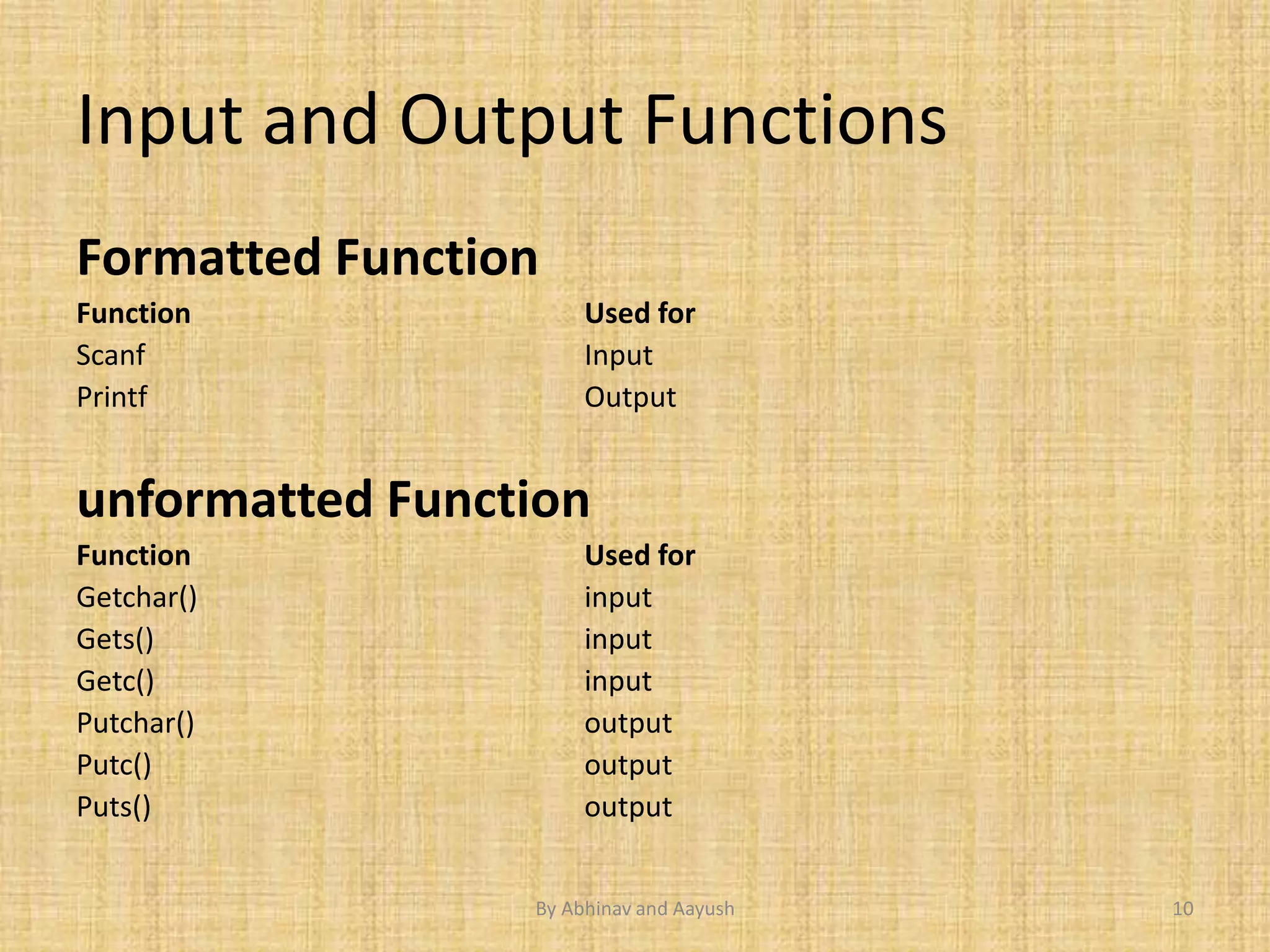
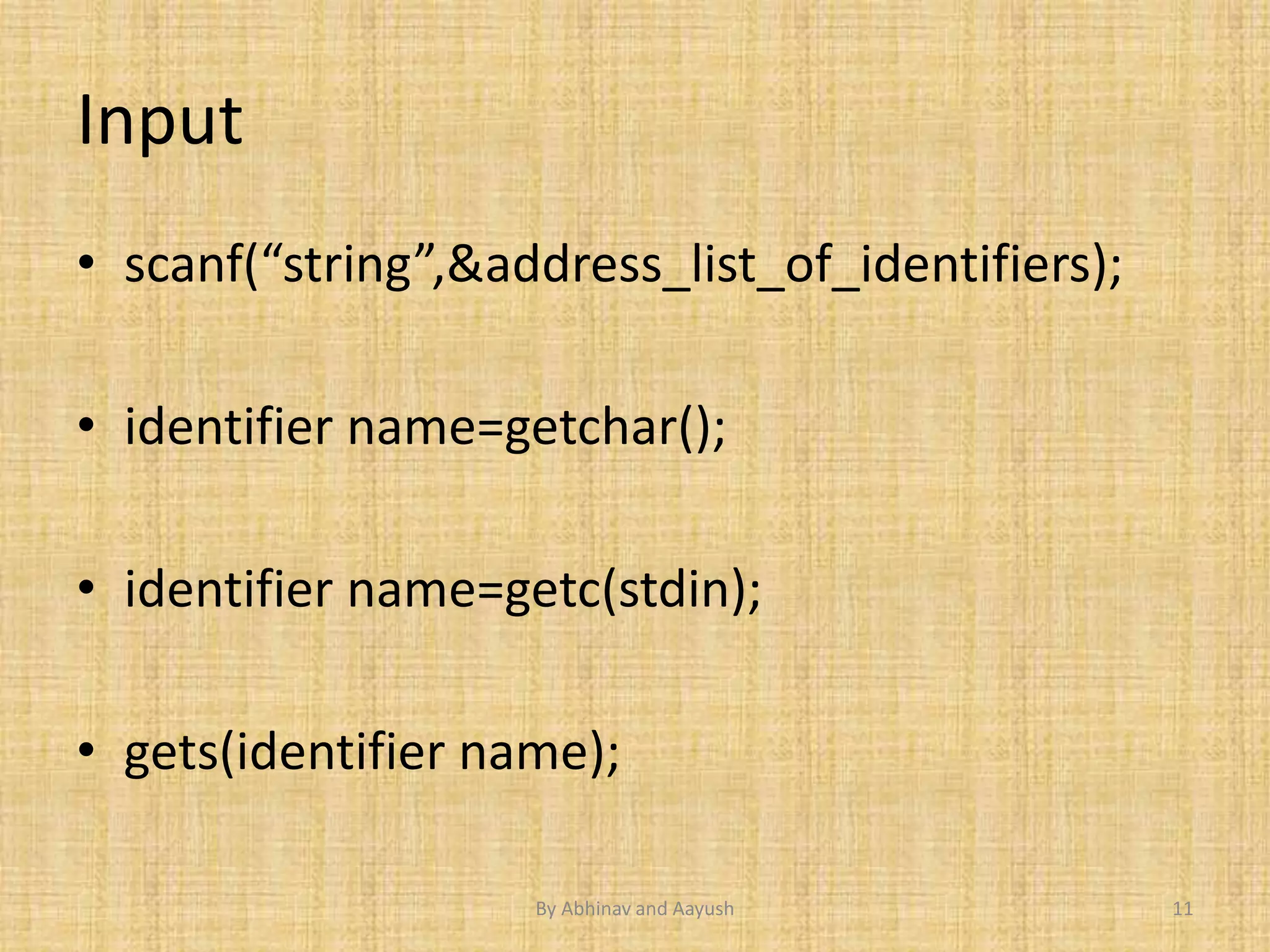
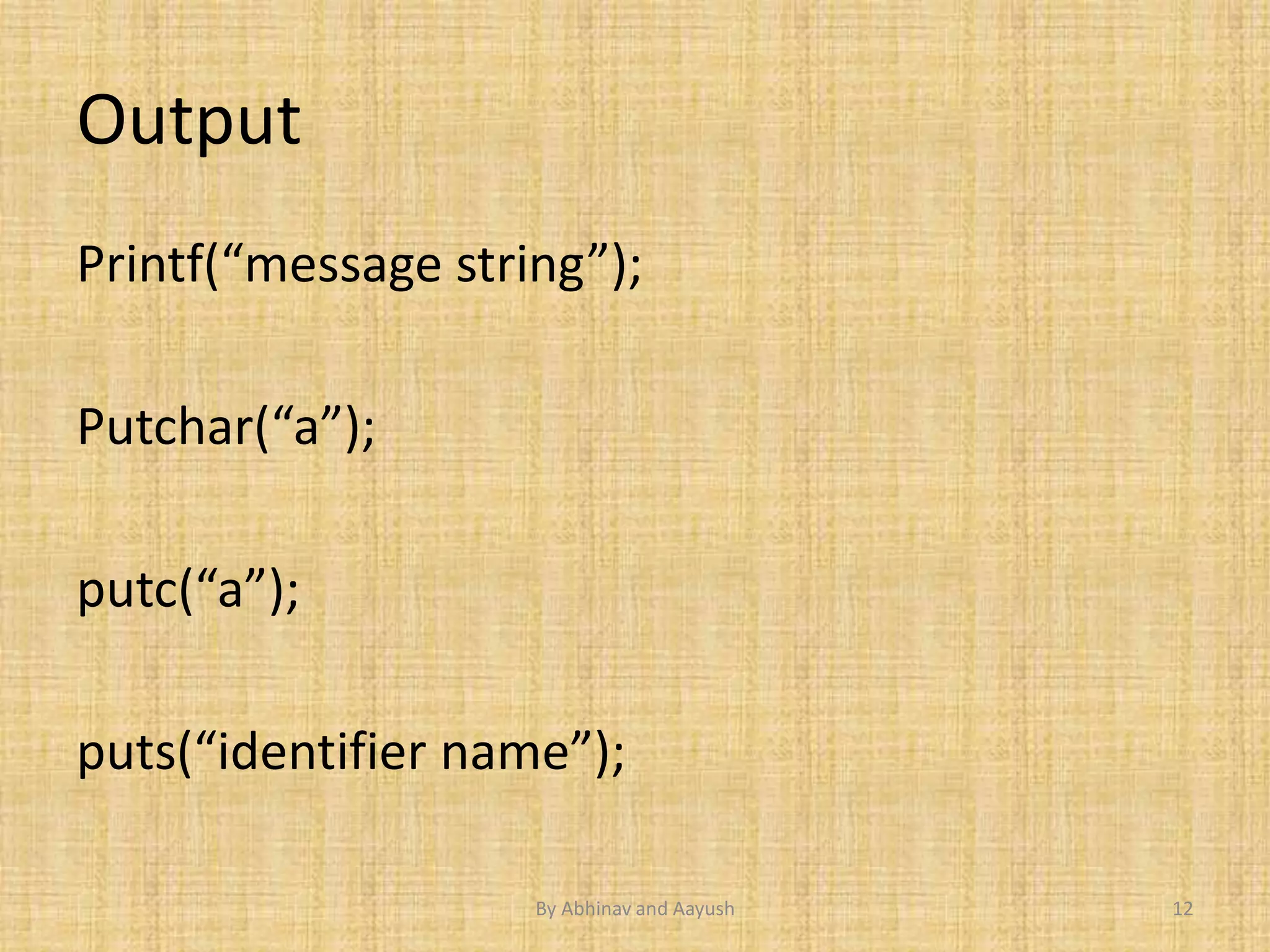
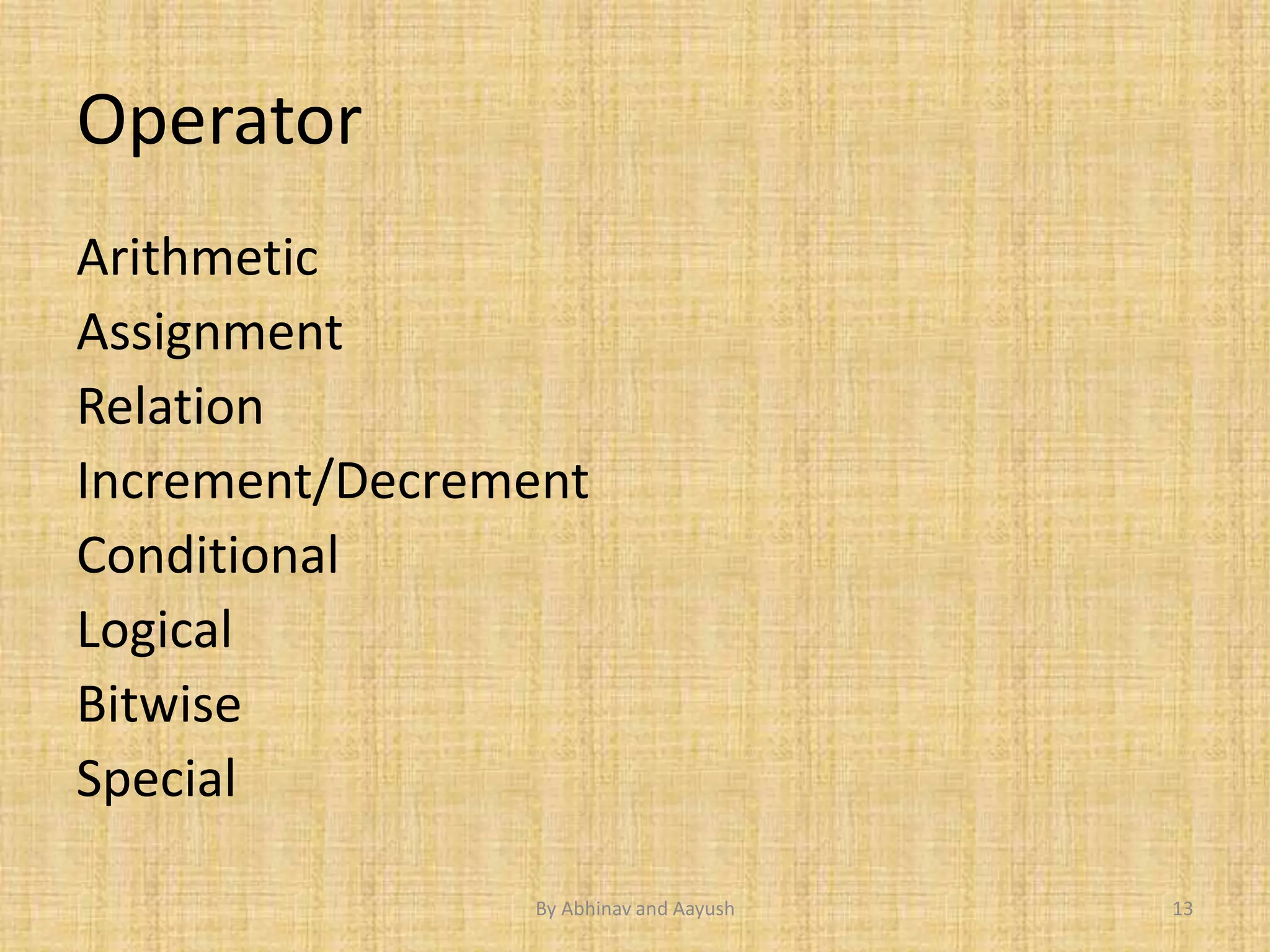
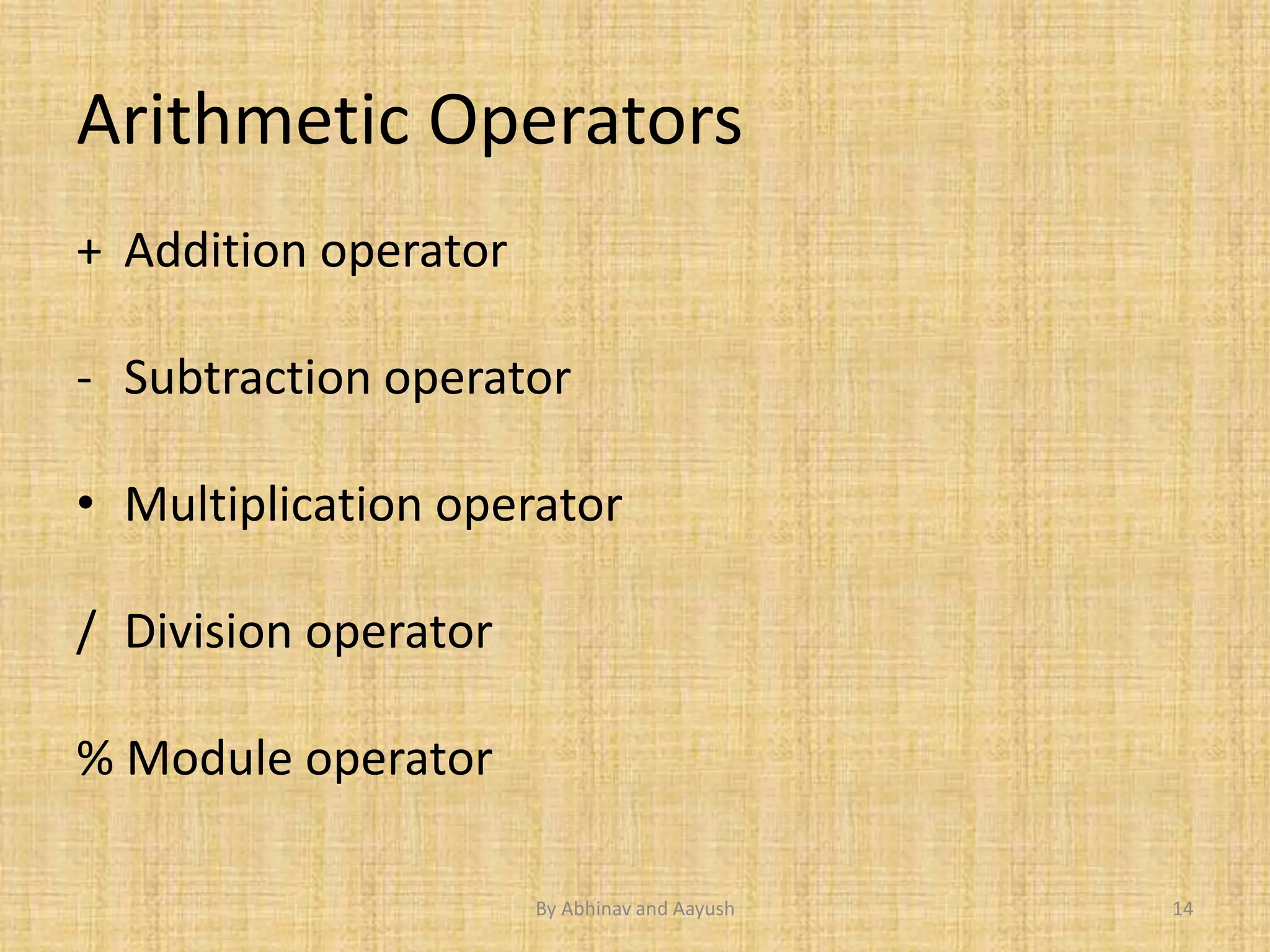
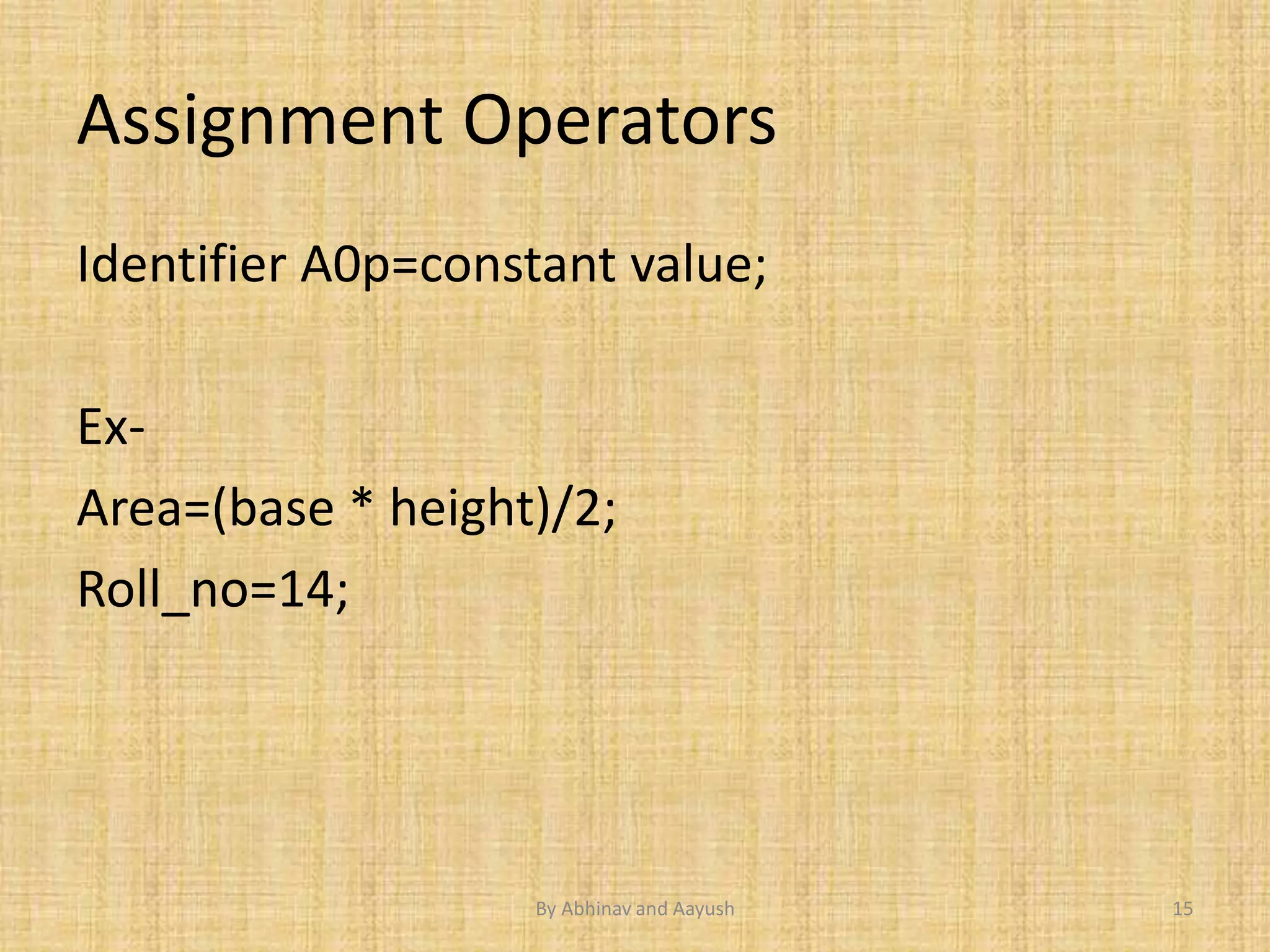
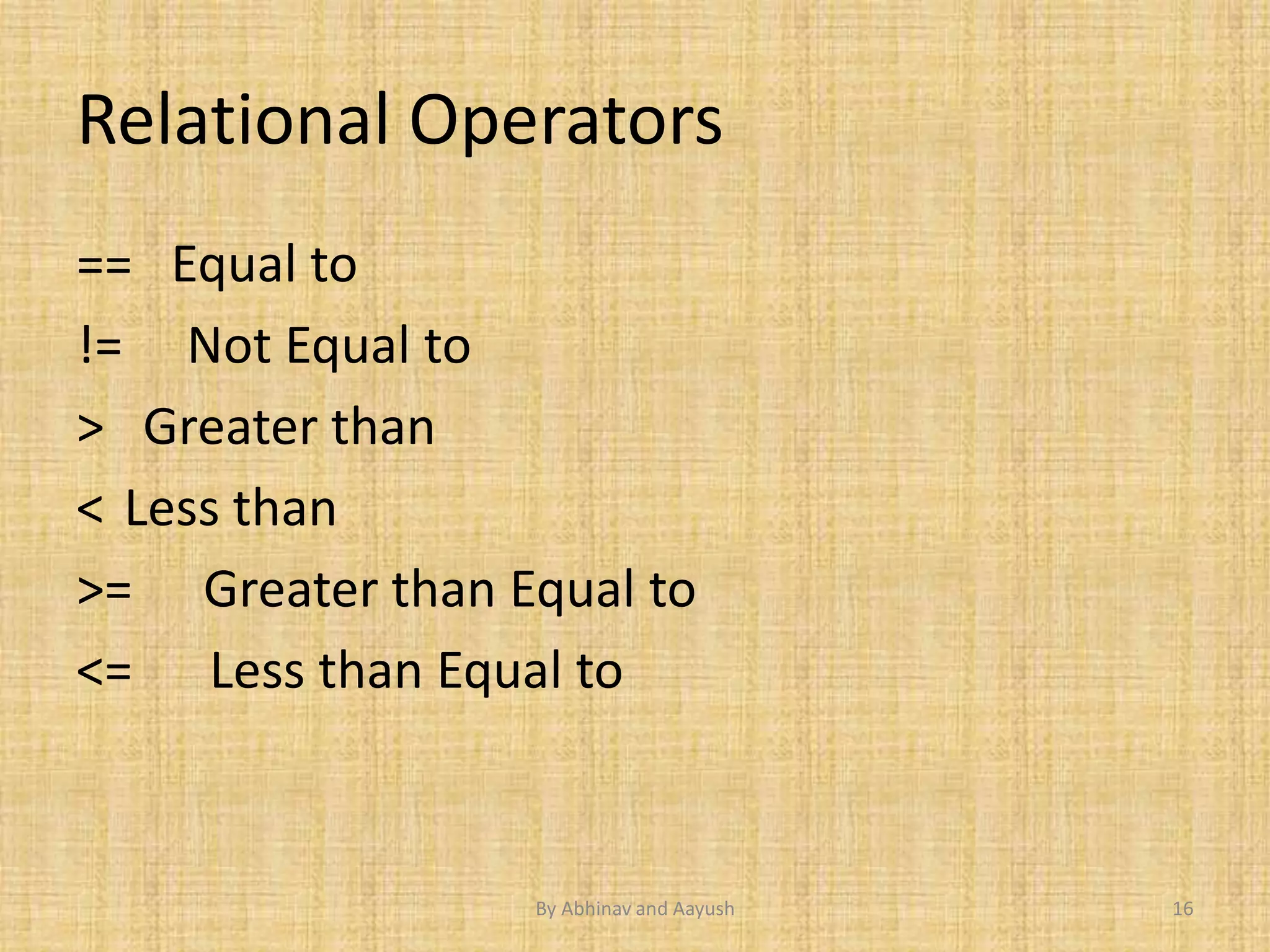
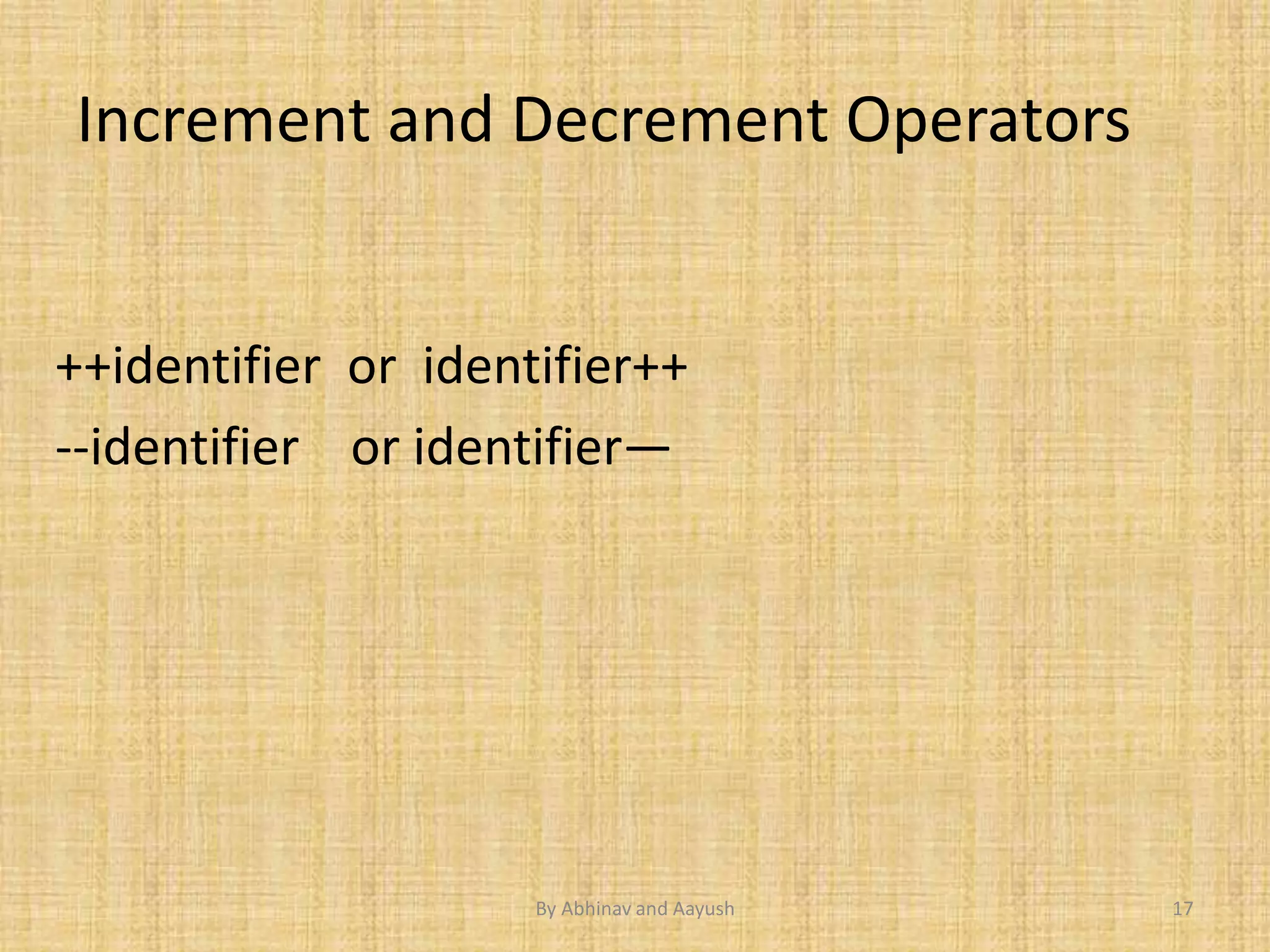
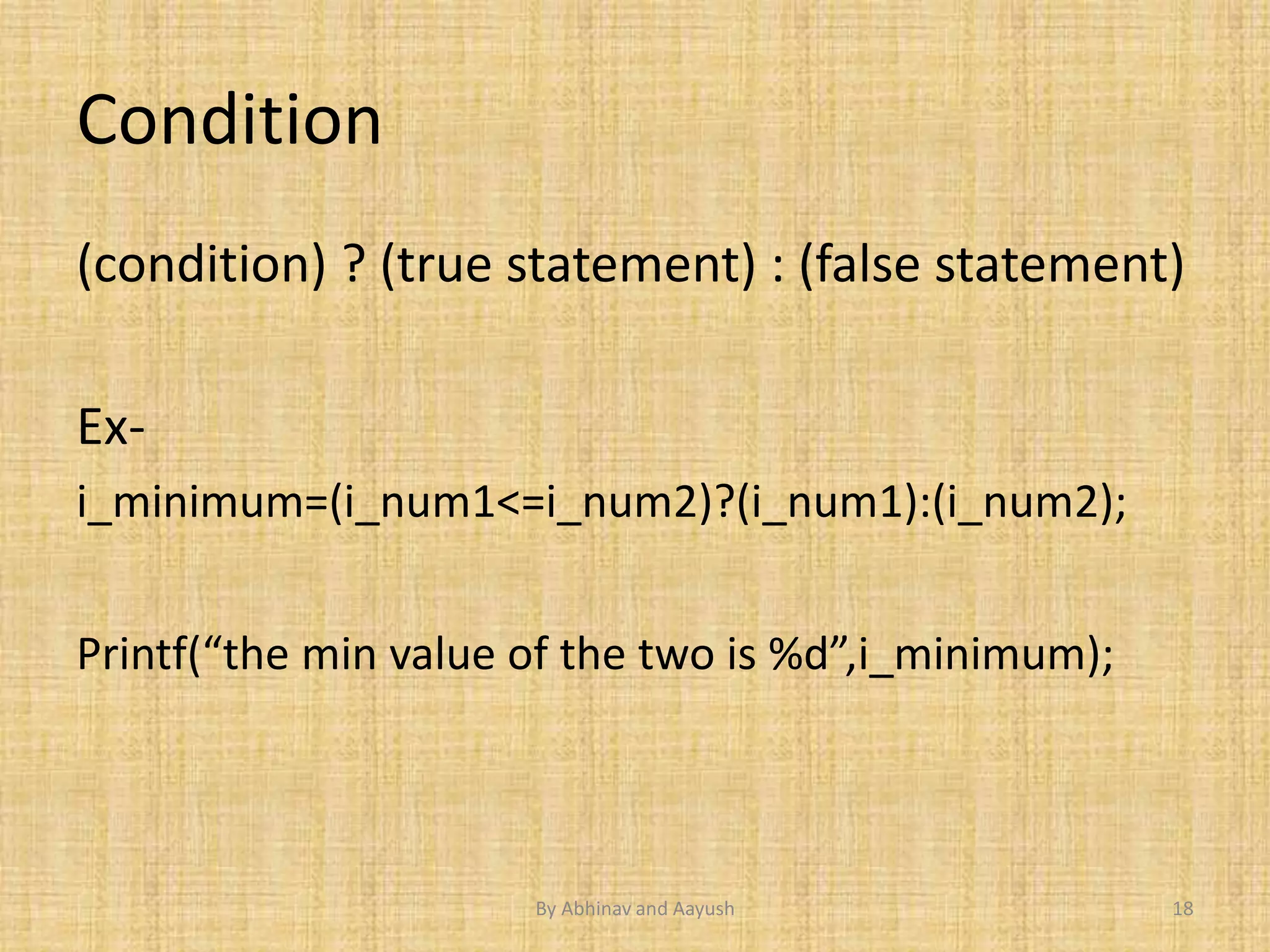
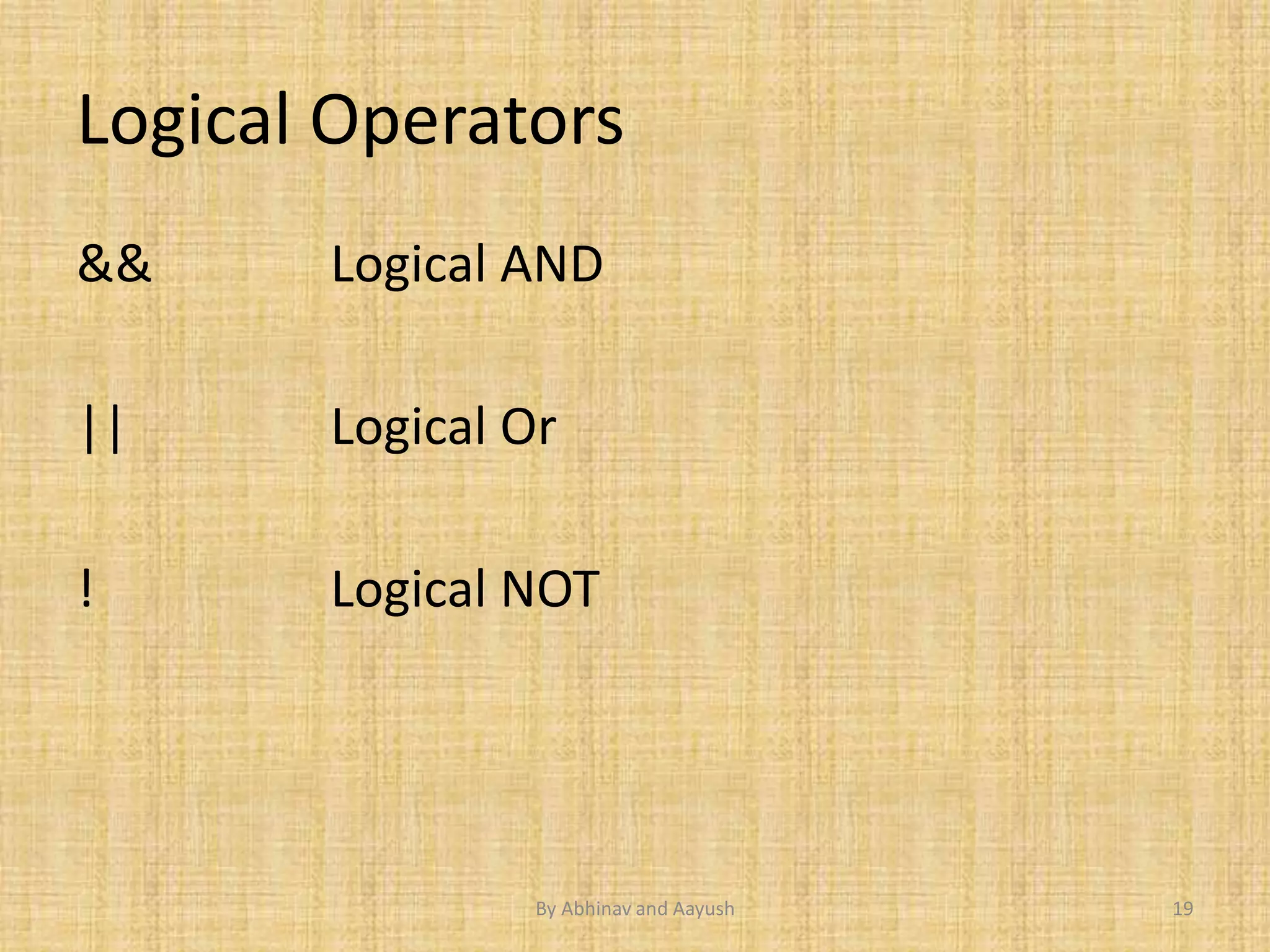
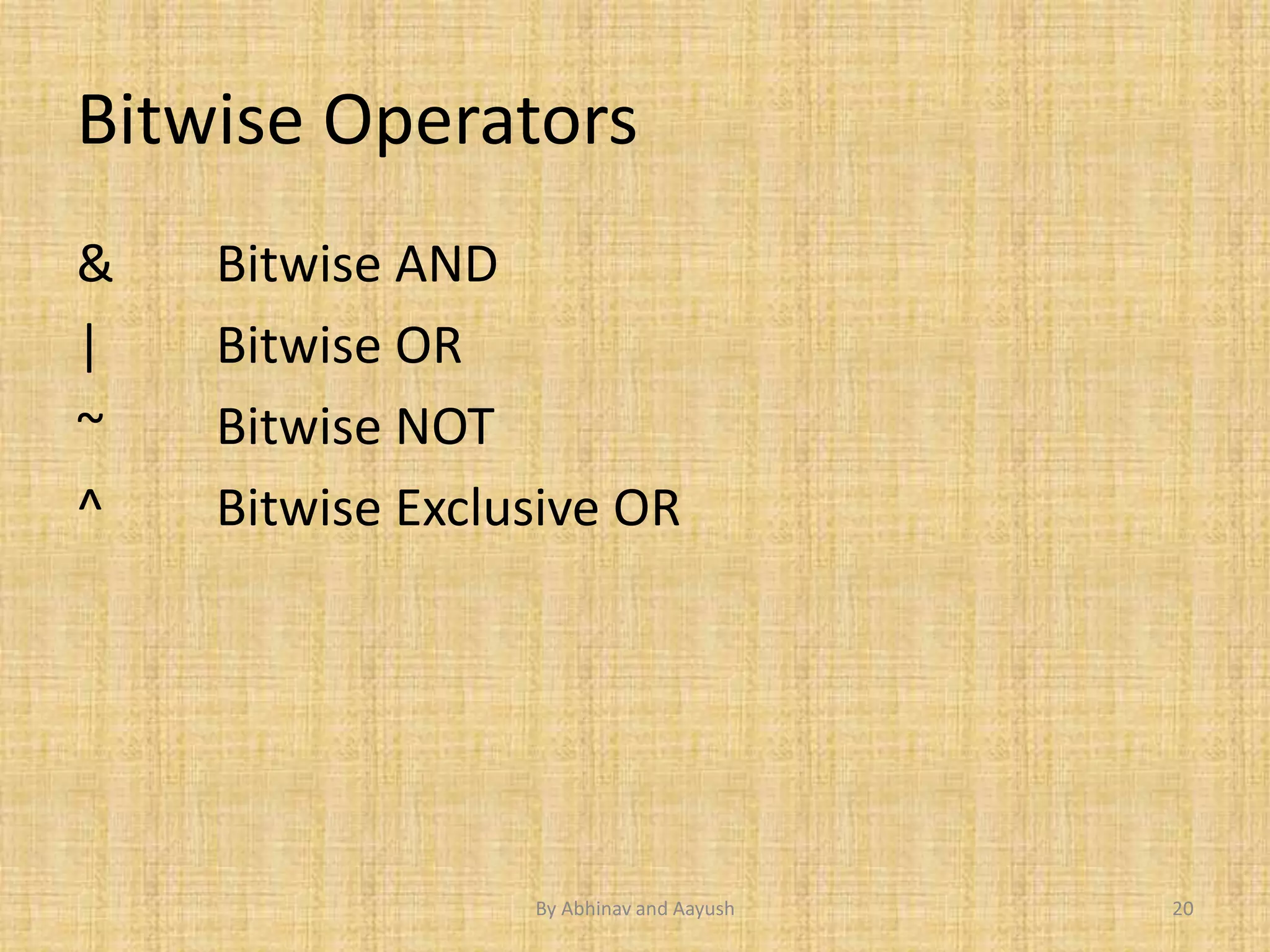
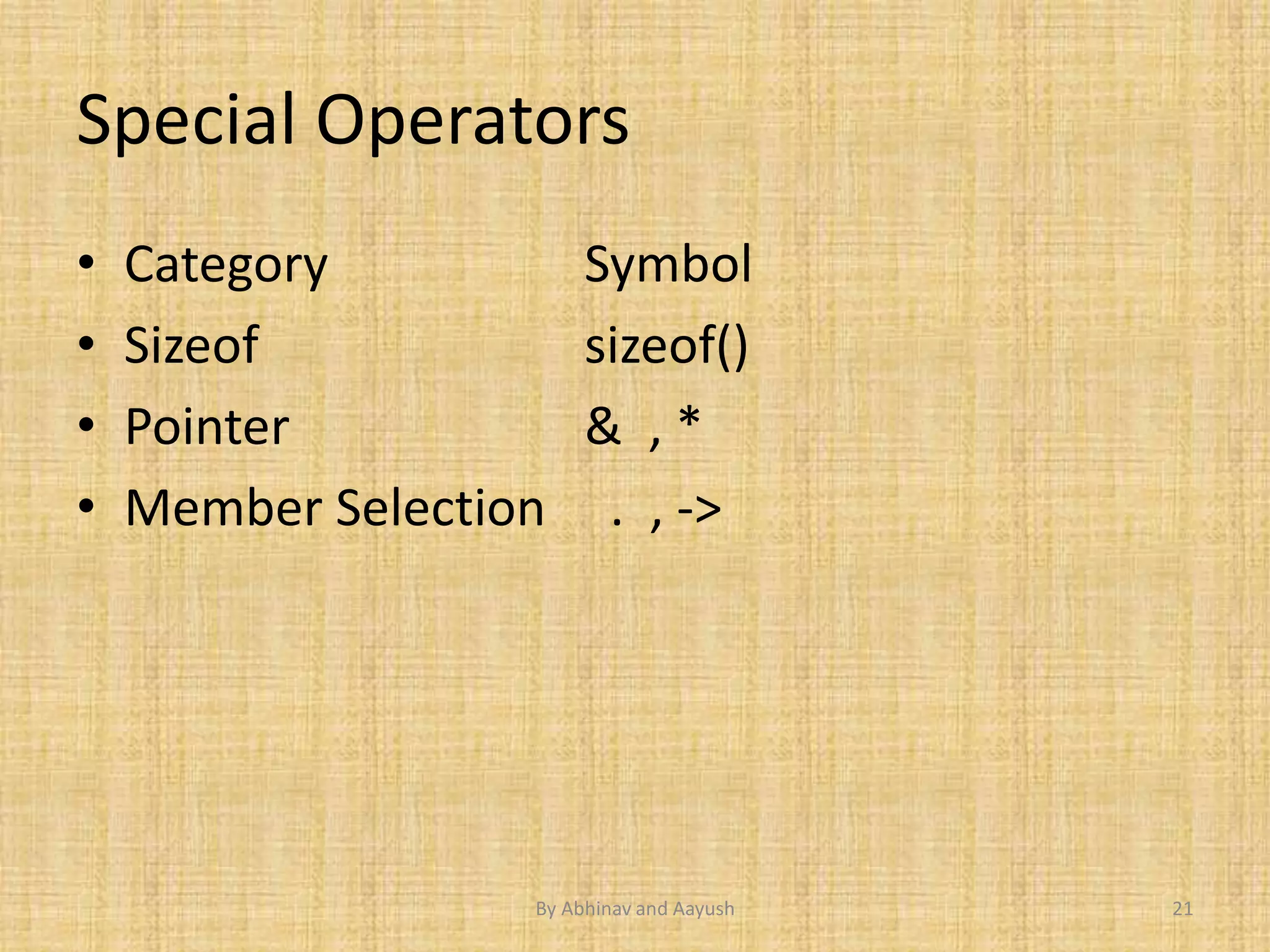
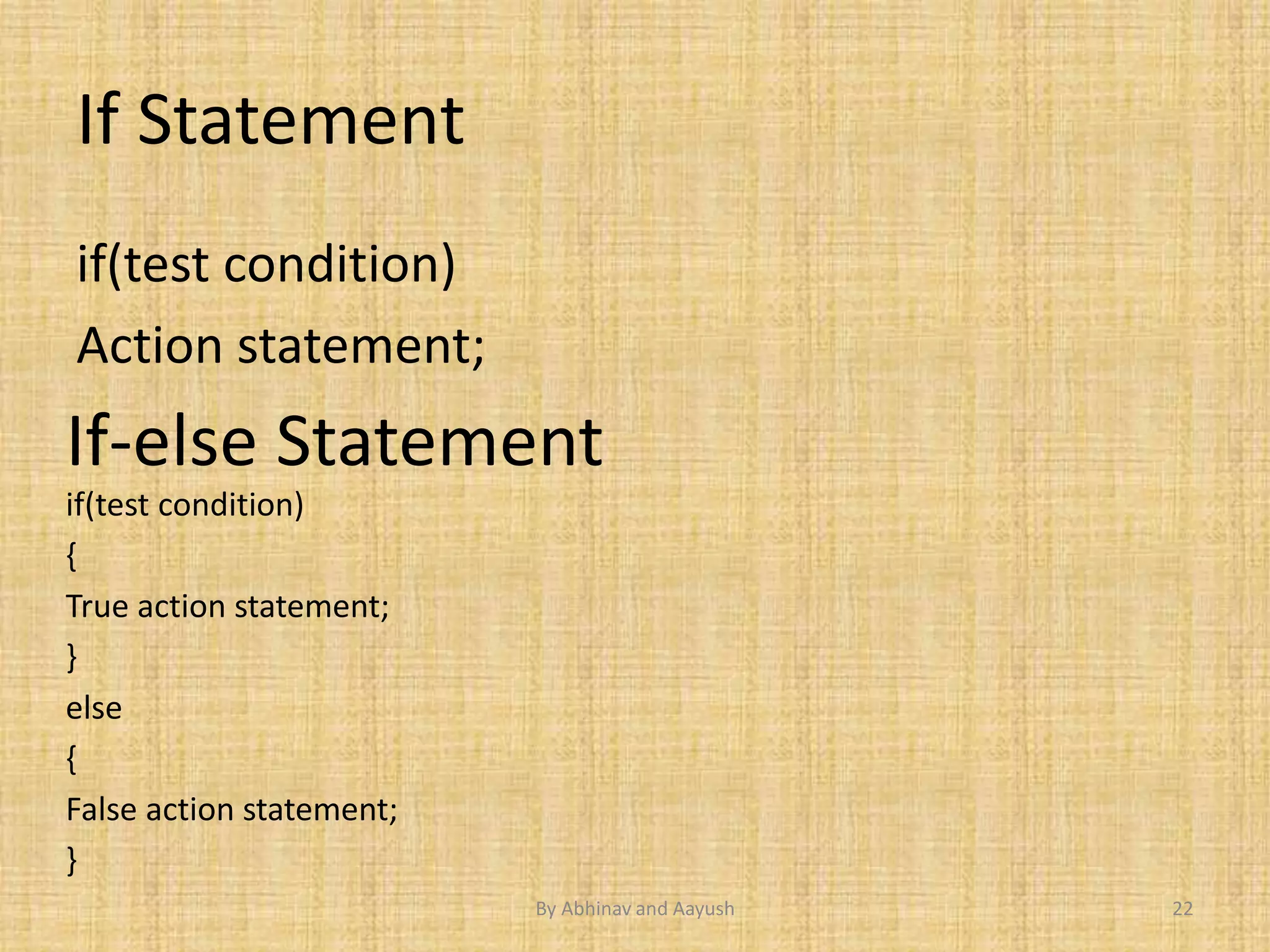
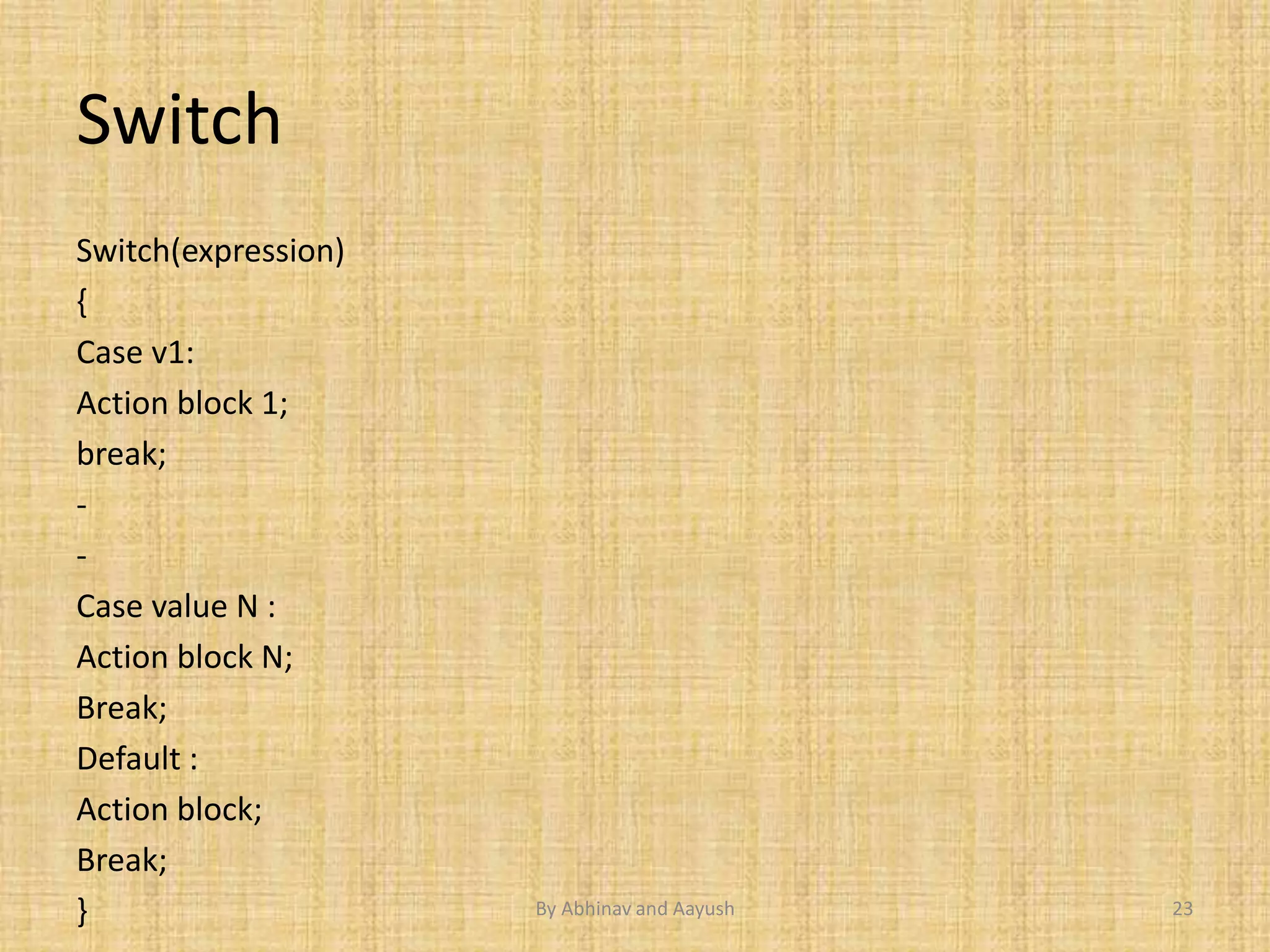
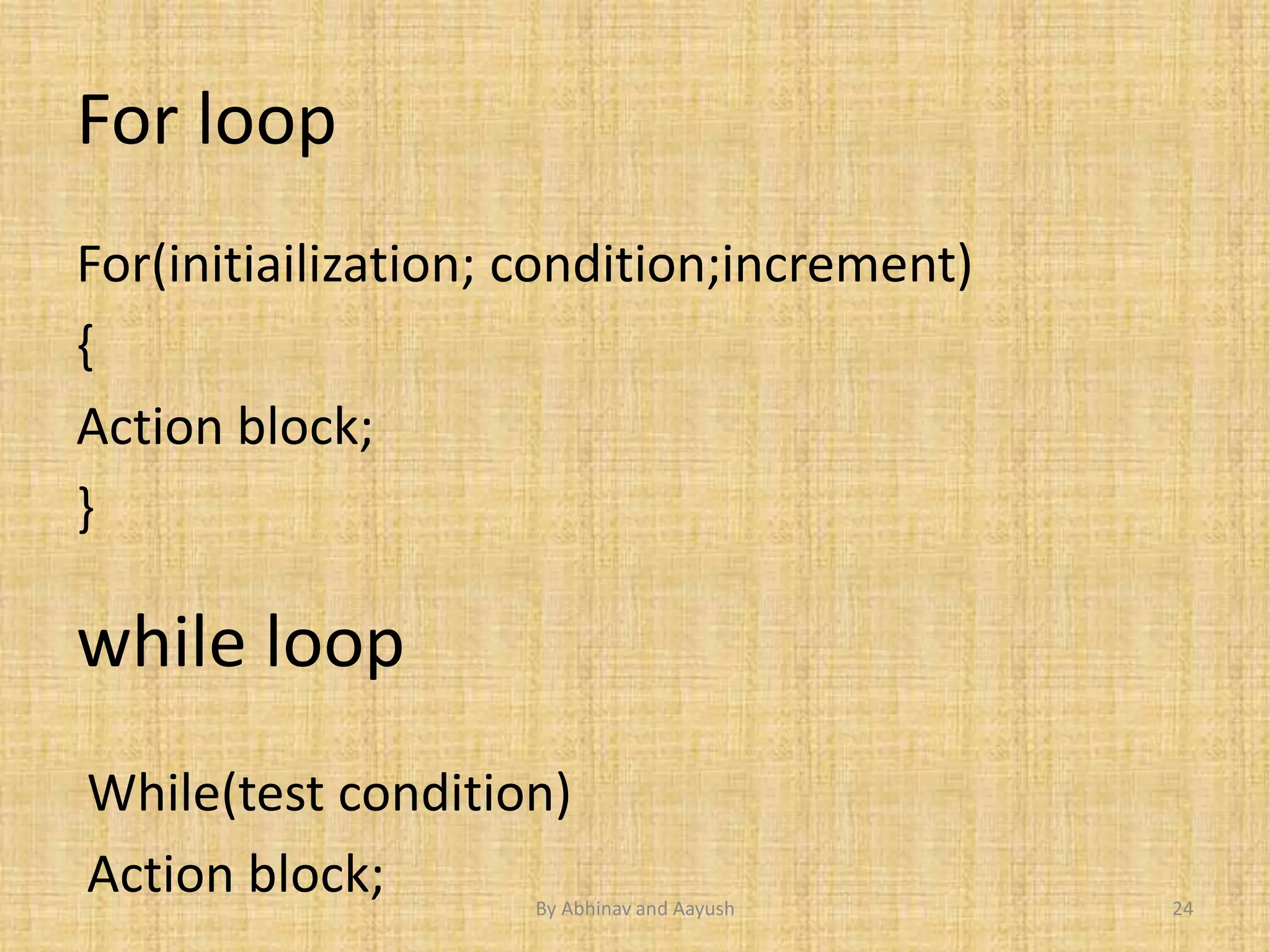
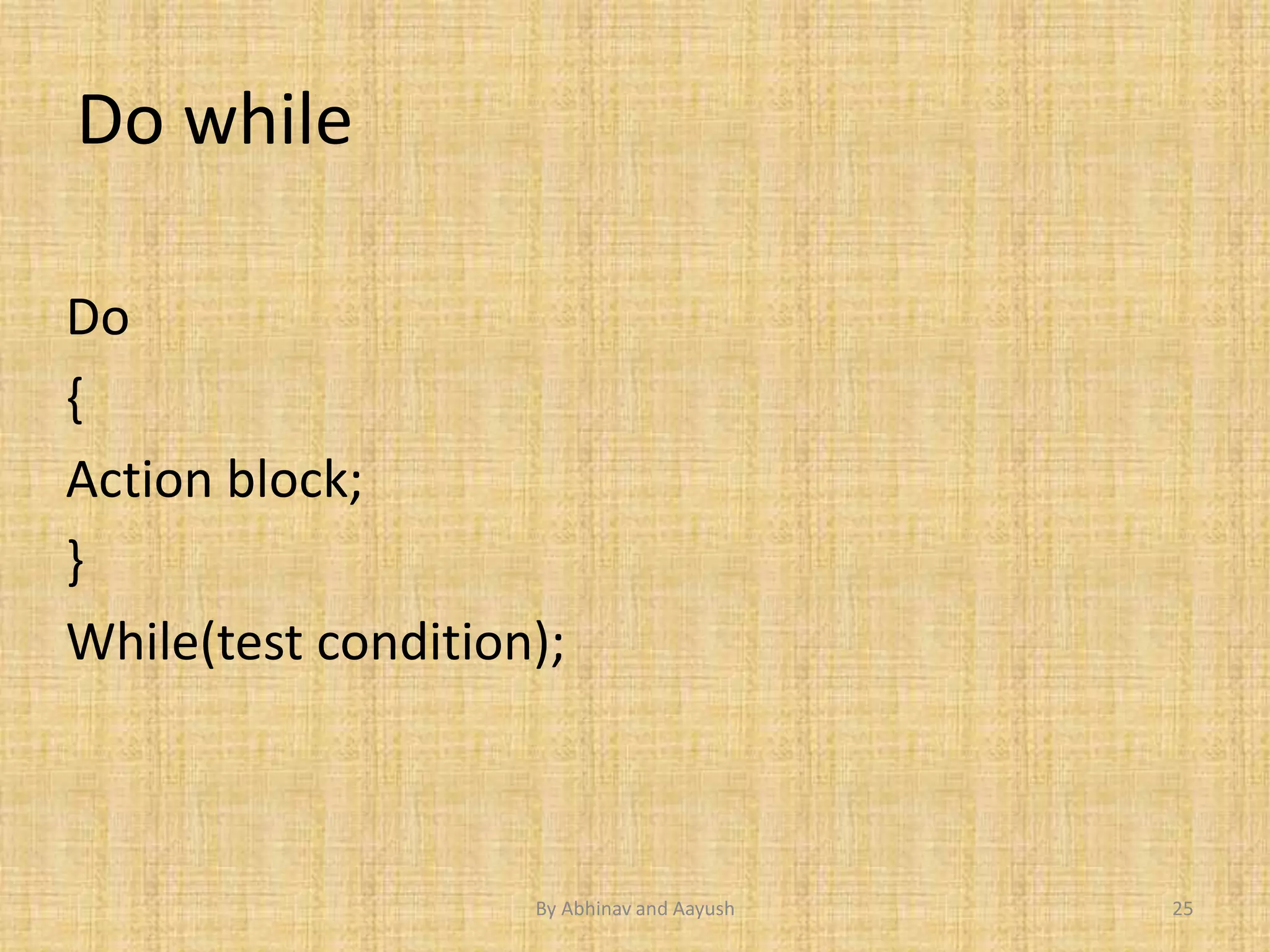
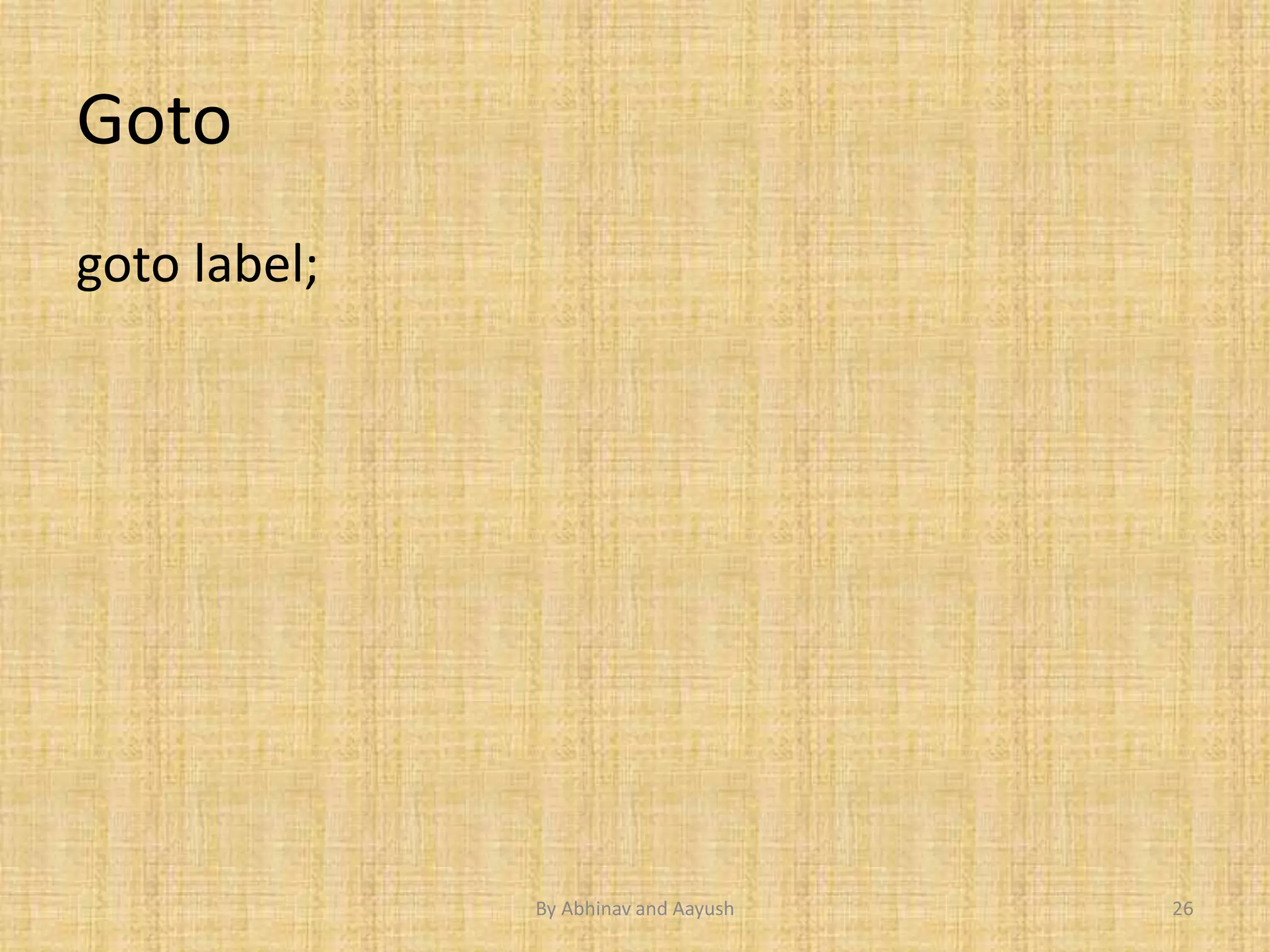
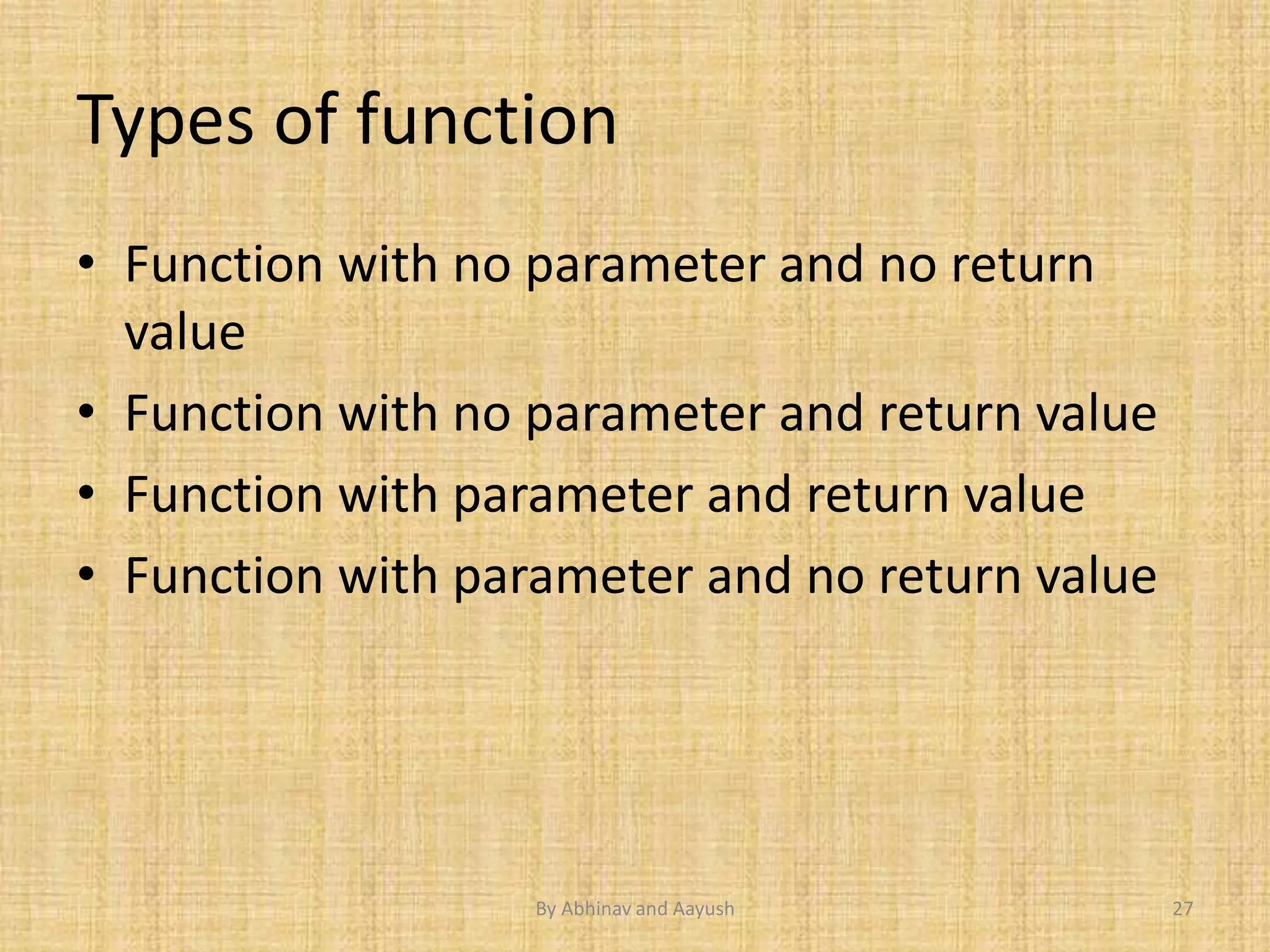
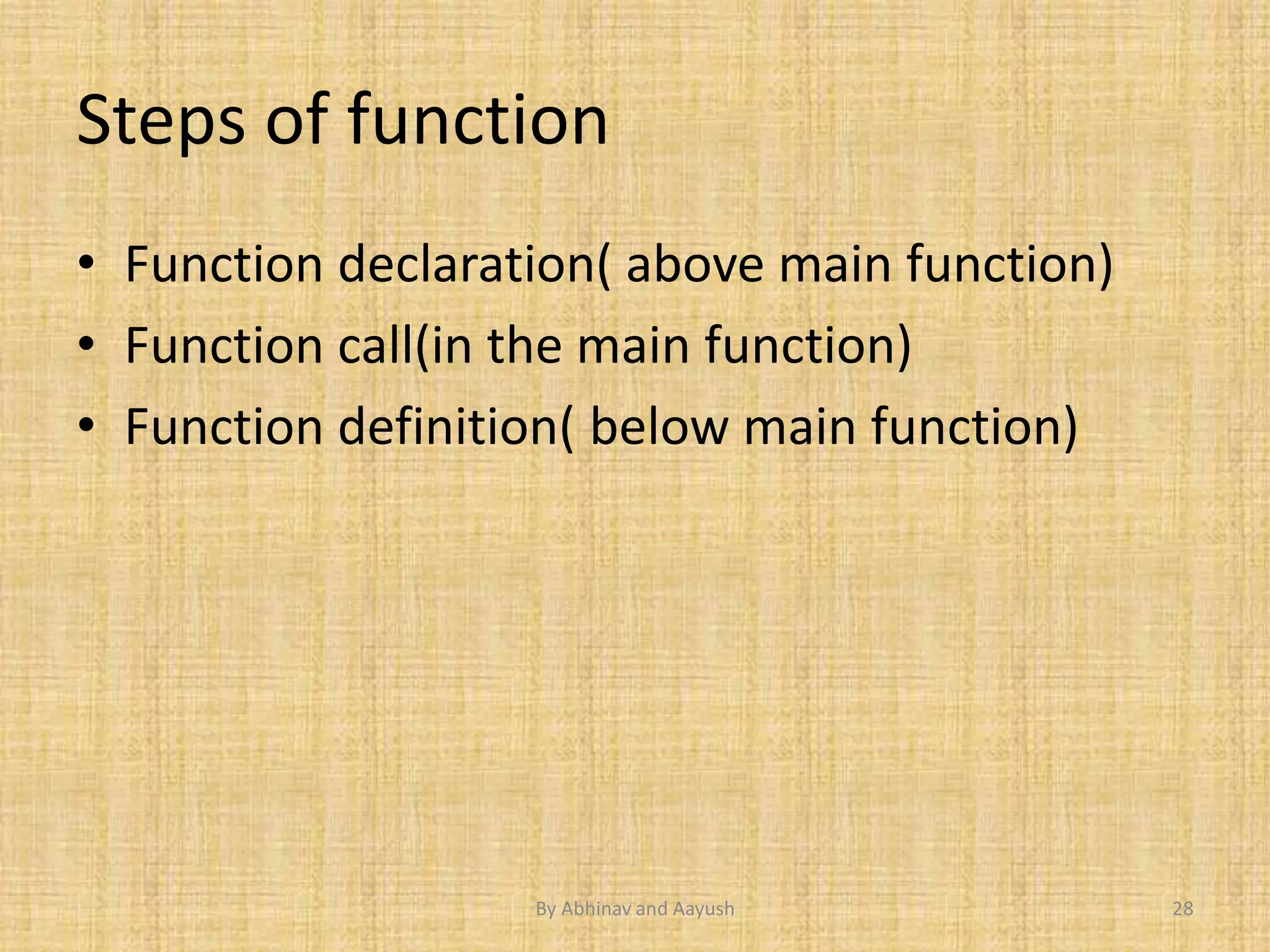
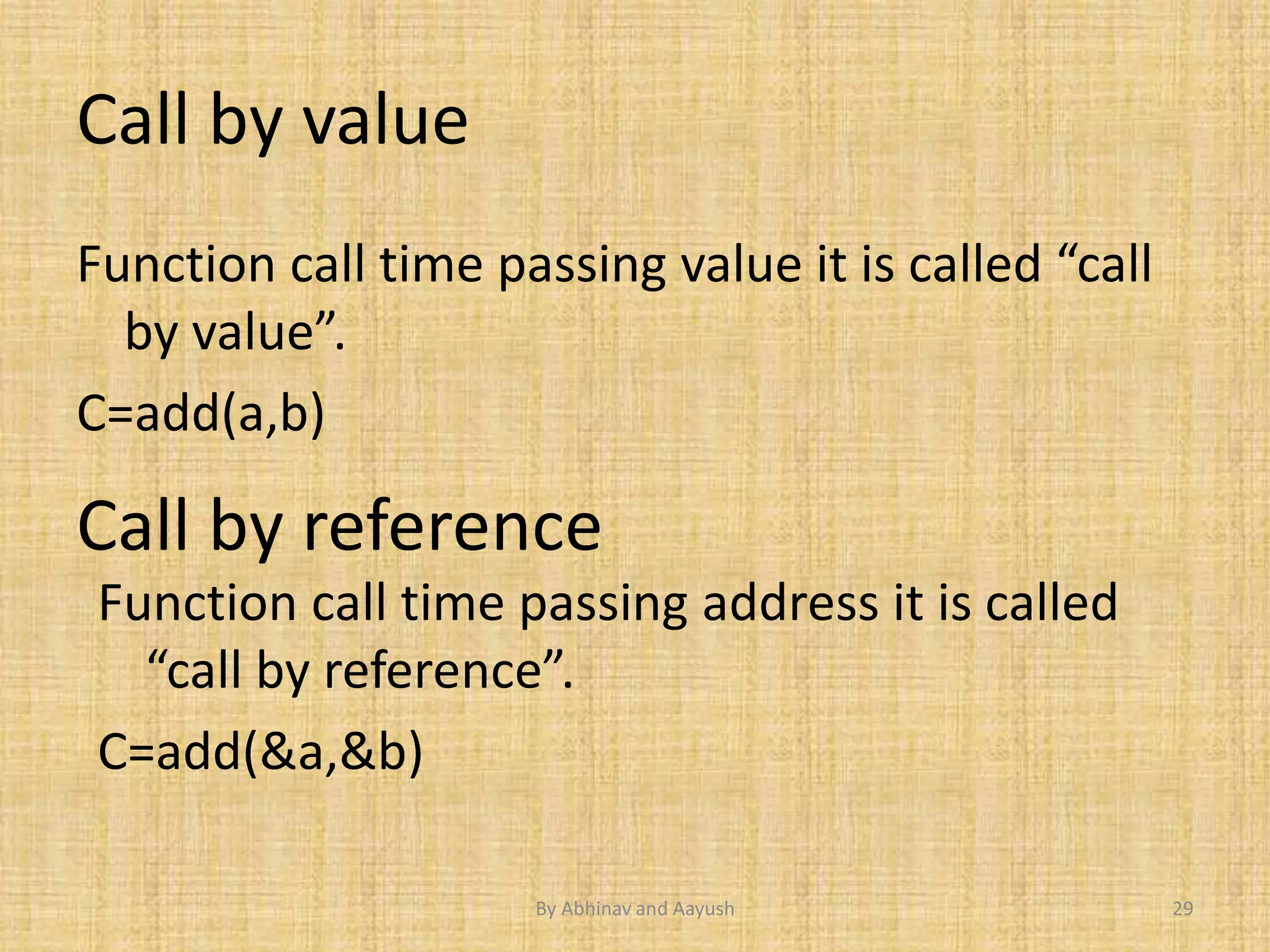
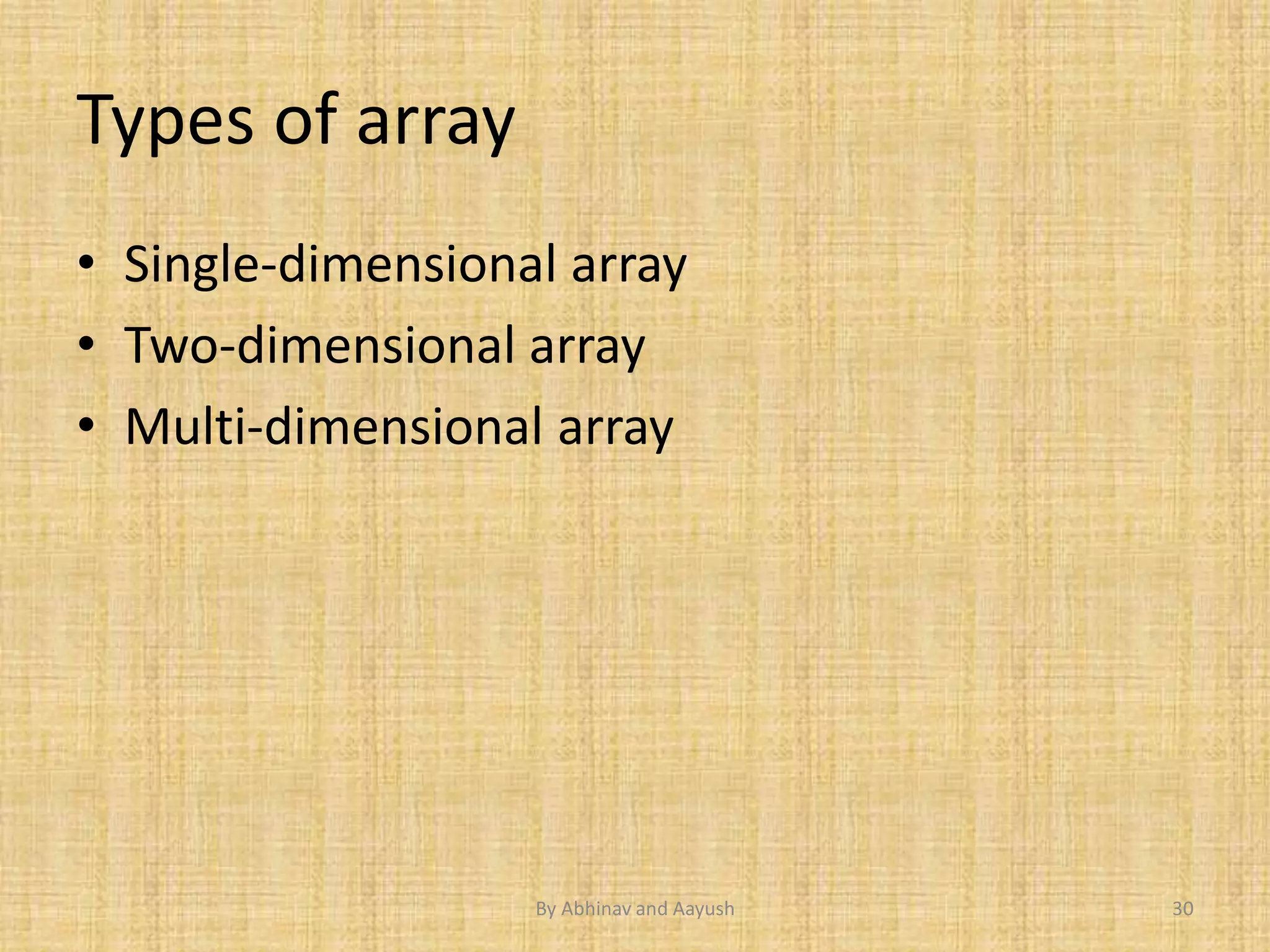
![Single-dimensional array
If an array has only one dimensional, it is call
Single-dimensional array
Syntax-
Type arrayname[size];
Ex-
Int a[5];
By Abhinav and Aayush 31](https://image.slidesharecdn.com/overviewofc2-141016091634-conversion-gate01/75/Overview-of-c-2-31-2048.jpg)
![Two-dimensional array
If an array has only two dimensional, it is call
two-dimensional array
Syntax-
Type arrayname[size] [size] [size];
Ex-
Int [5][5];
By Abhinav and Aayush 32](https://image.slidesharecdn.com/overviewofc2-141016091634-conversion-gate01/75/Overview-of-c-2-32-2048.jpg)
![Multi-dimensional array
If an array has two or more dimensional it is call
multi-dimensional array
Syntax-
Type arrayname[size] [size] [size];
Exp-
Int [5][5][2];
By Abhinav and Aayush 33](https://image.slidesharecdn.com/overviewofc2-141016091634-conversion-gate01/75/Overview-of-c-2-33-2048.jpg)
![String
One or more character are called string.
Syntax
Data type string name[size];
Ex-
Char name[10];
By Abhinav and Aayush 34](https://image.slidesharecdn.com/overviewofc2-141016091634-conversion-gate01/75/Overview-of-c-2-34-2048.jpg)
